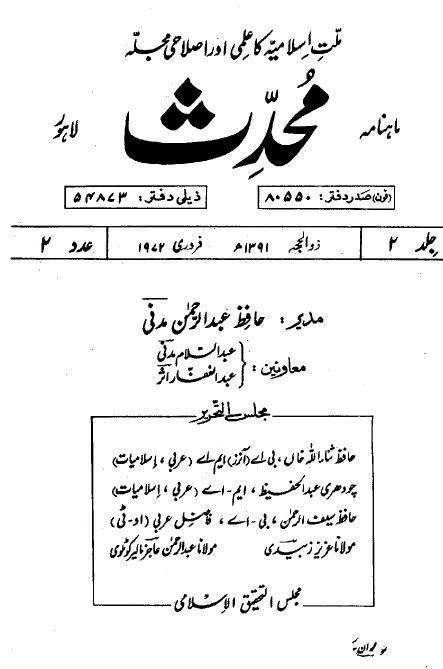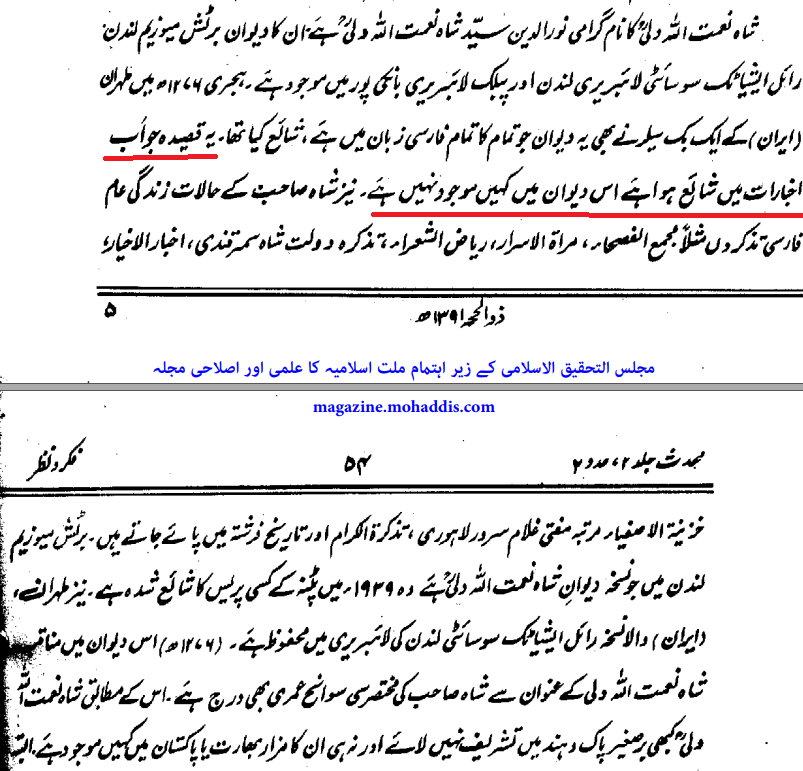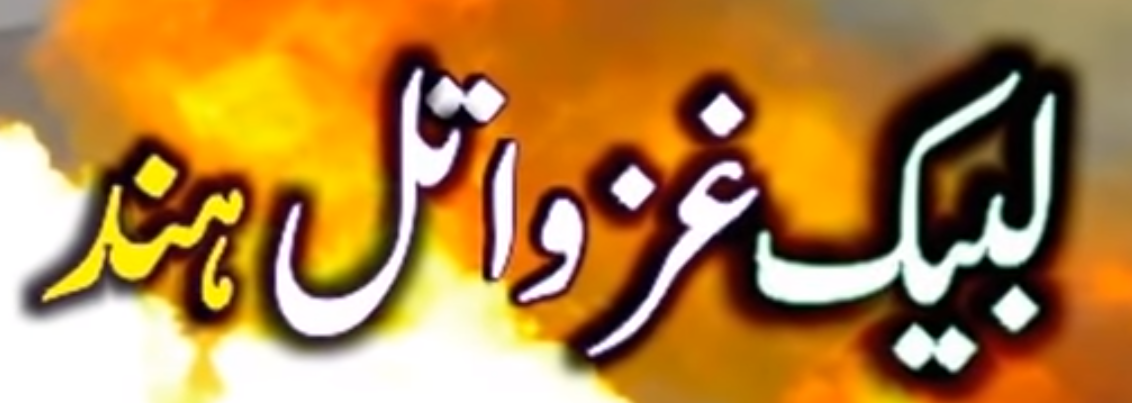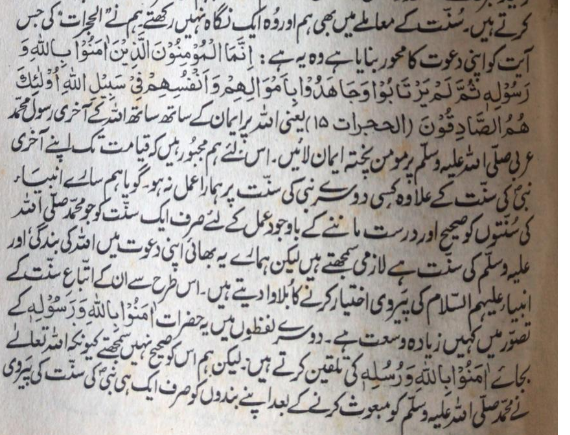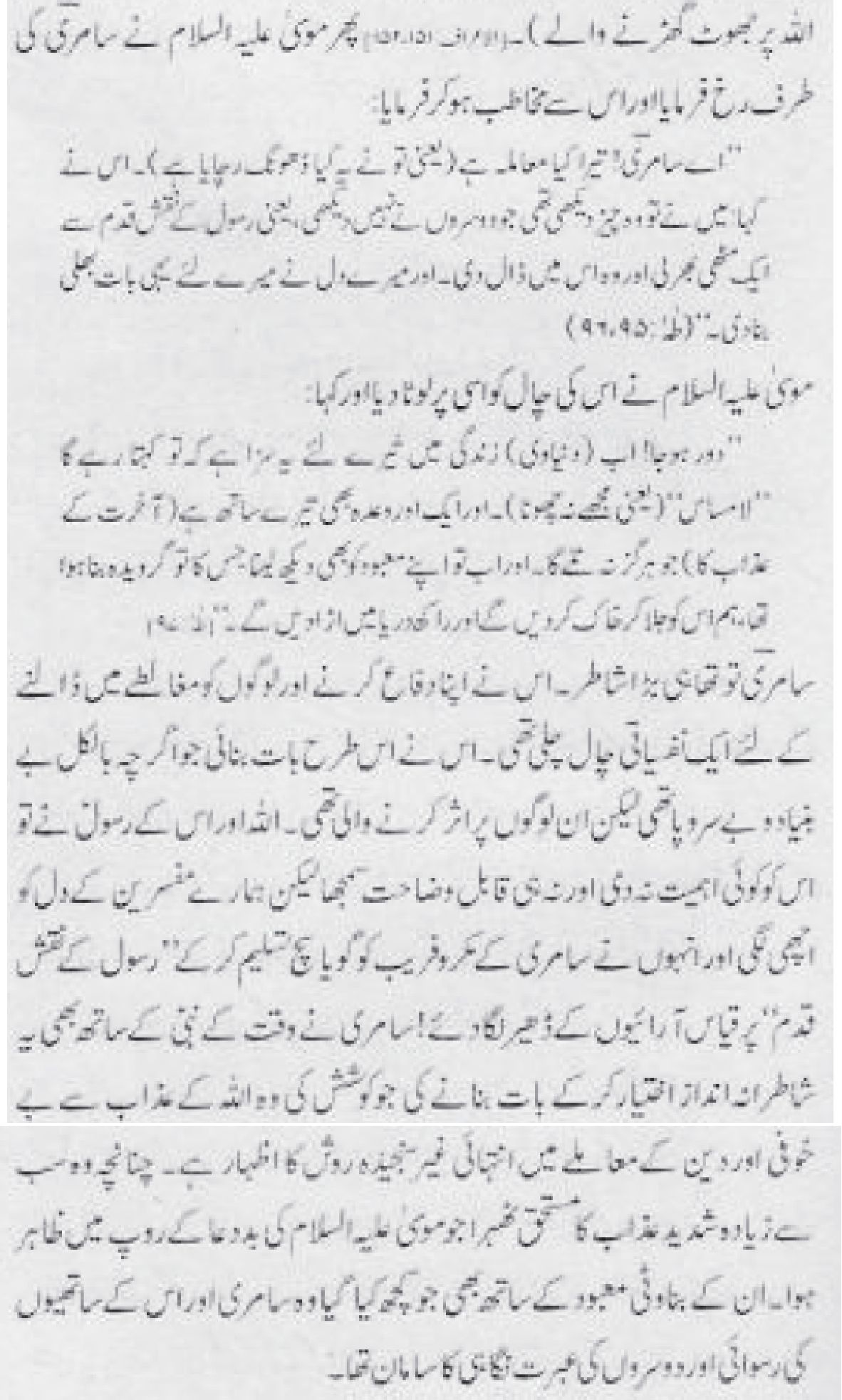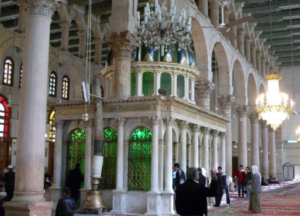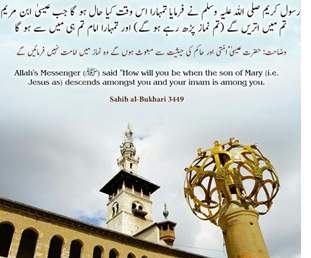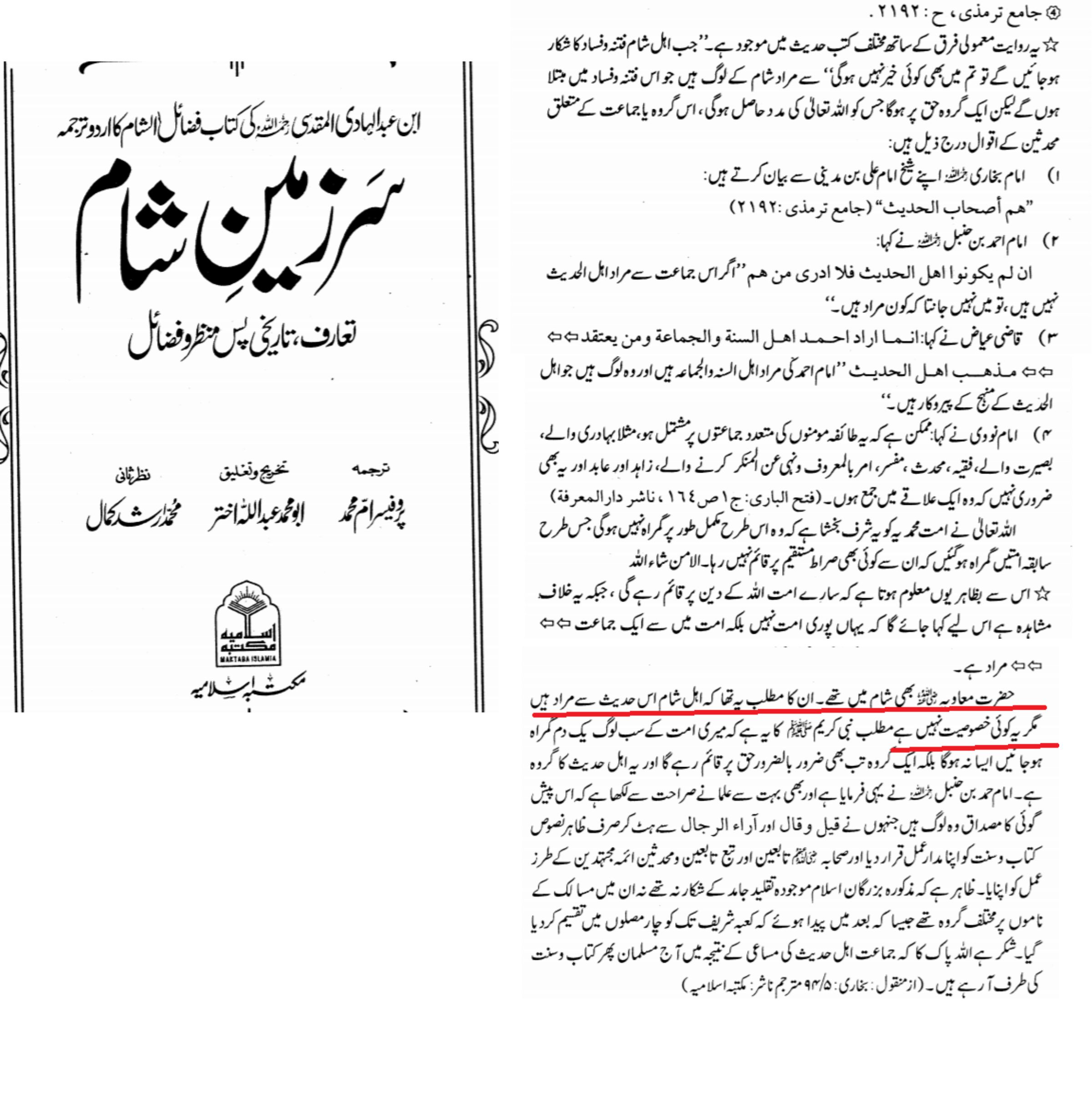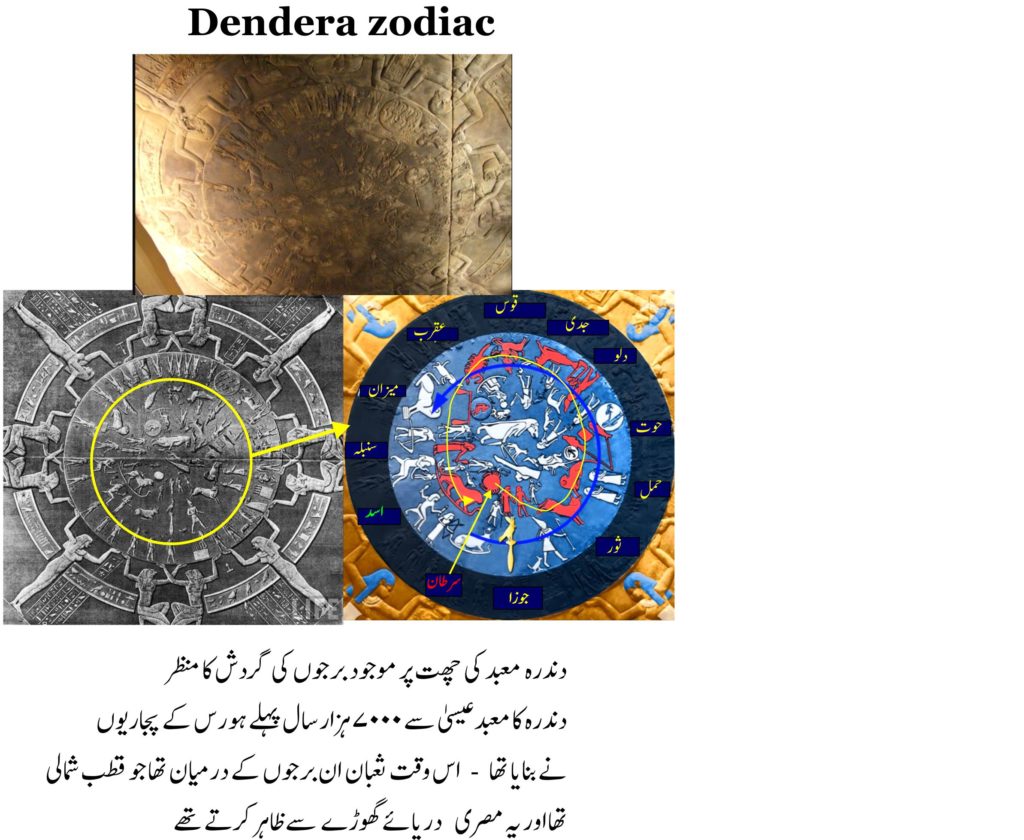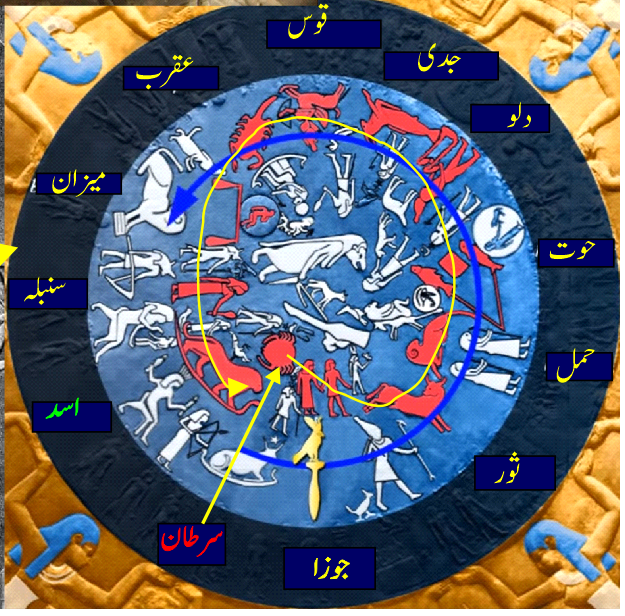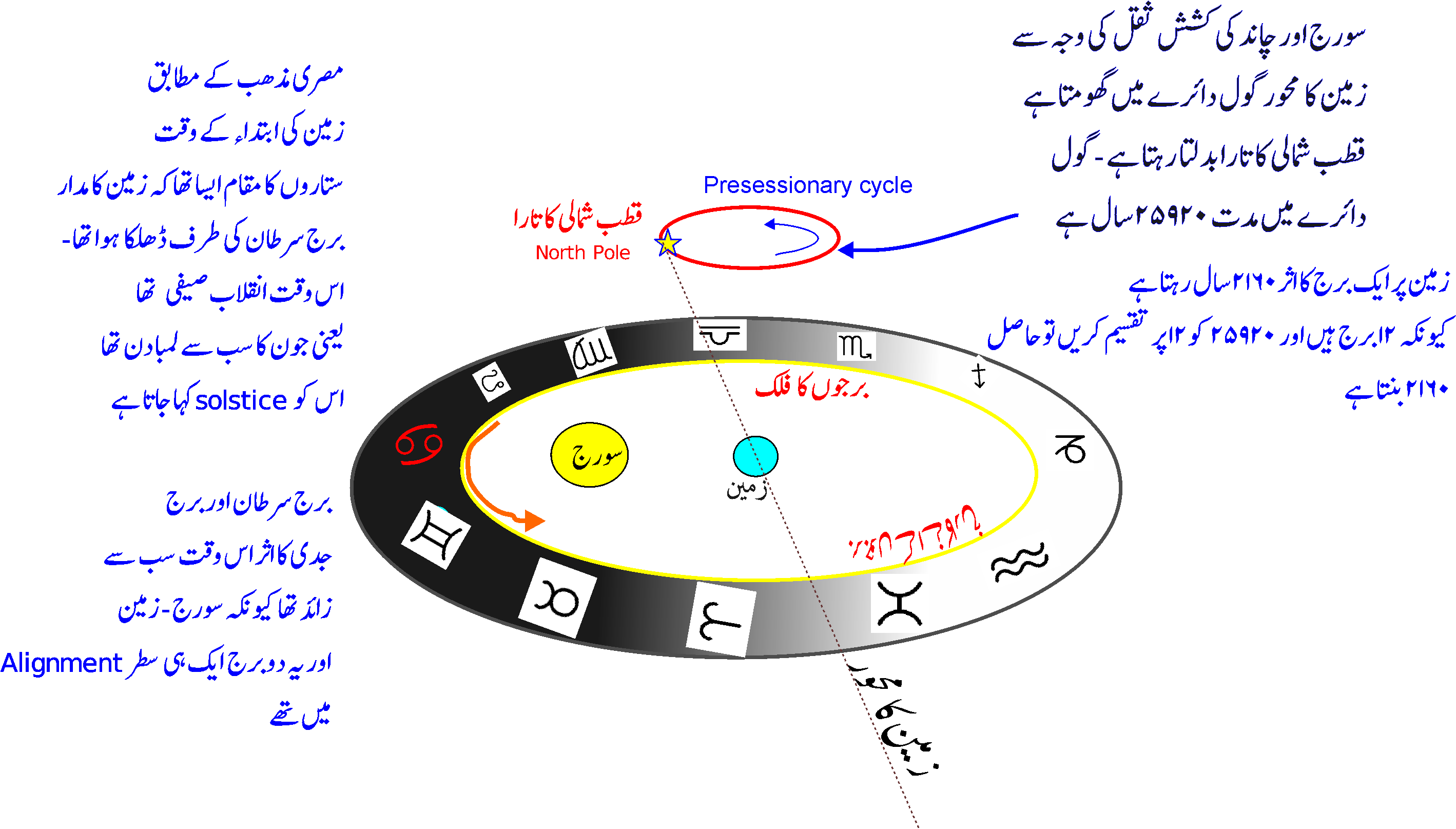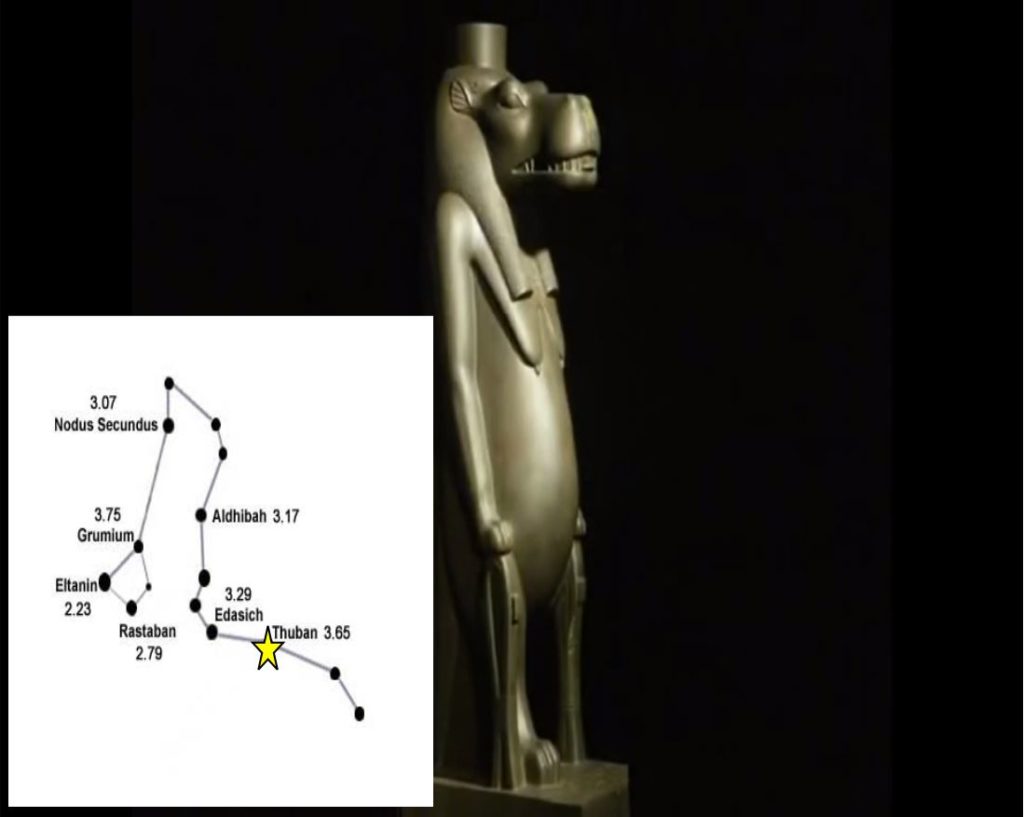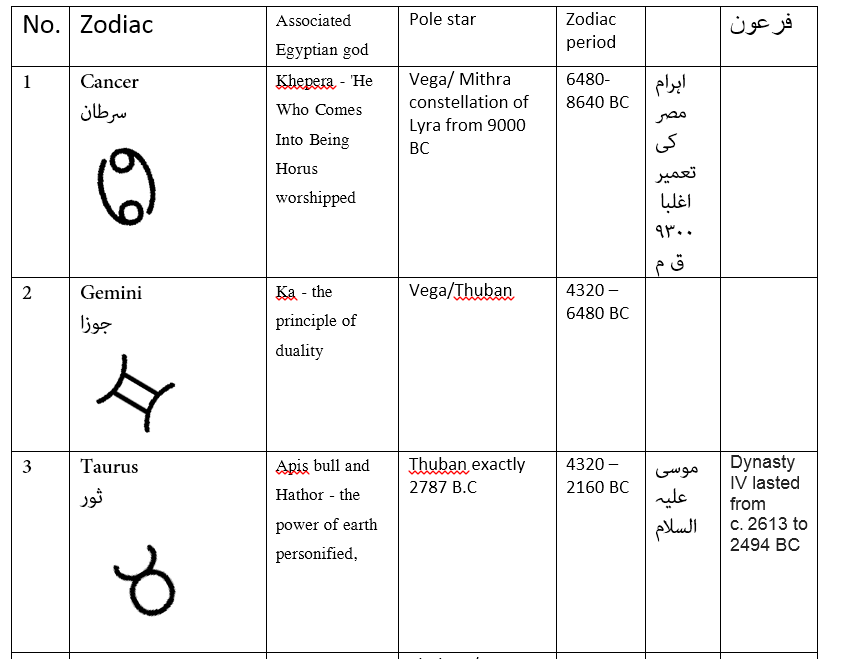Awiated Al-Mahdi
بسم الله الرحمن الرحيم
Mahdi, a mysterious personality who like the Jewish Messiah expected to appear before the end of times, is a concept we hear from scholars of both Shiite and Sunni Schools. According to this concept at the time when world is about to complete its age an apocalyptic figure would appear and would lead the Muslims. Whenever there are political upheavals in the Muslim societies, this concept comes in limelight.
Shiite say that the person Al-Mahdi is already born and they call him the Occult Imam or Imam Al-Ghayyab. Also remembered with the titles of Qayim Al-Qiyyamah i.e. One who would establish the day of Judgement, and they are waiting eagerly for its appearance in physical world. Closely connected Shiite belief is the concept called Rija ( The returning), which means that when the war between the forces of evil and good ensued the Mahdi would raise an army of stalwart Shiite supporters from underworld which were died in reign of oppression, which starts with the caliphate of Abu-Bakr. Hence their souls would be returned and they would be resurrected.
Sunni belief is here different, they also belief in the concept of Al-Mahdi, but claim that this person would be from the family of Prophet Peace be upon him and he would appear before the descending of Jesus peace be upon him. According to them he would be a great leader or caliph of Muslims.
Ibn-Tammiyah said in Minhaj al-Sunnatal Nabbawiyah fi Naqdh al-Kalam al-Shia wal-Qadariyah juz 8 pg 254
أن الأحاديث التي يحتج بها على خروج المهدي أحاديث صحيحة
The narrations which give proof of the appearance of Al-Mahdi are all authentic hadiths.
In this treatise the narrations reported in support of this concept are analysed in the balance of history and the science of Jirah wal Tadeel.
Concept of Mahdi from Sahih narrations
Prophet peace be upon him has informed that before the blowing of Conch by Israfeel peace be upon him there would be ten sings of Day of Judgement. 1. Smoke 2. Dajjal (Deceiver) 3. Dabatul Ardh (Animal of Earth) 4. Rising of the Sun from West 5. Descend of Jesus peace be upon him 6. Yajooj wa Majooj 7. Depression of Earth in East 8. Depression of Earth in West 9. Depression of Earth in Arabia 10. Fire. (Sahih Muslim , Kitab al-Fitan and sings of day of judgement)
Among these signs there are two personalities. One is Jesus and another one is Dajjal. However some scholars in SunniSchool of thought have made themselves an eleventh sign and that they call the appearance of Al-Mahdi.
According to Arabic dictionary Al-Mahdi means any one who is rightly-guided man.
Prophet prayed for Abi Salmah (Sahih Muslim, Abi Dawood)
اللهم اغفر لأبي سلمة وارفع درجته في المهديين
O Allah, forgive Abu Salama, raise his degree among those who are rightly guided,
Prophet prayed for Jareer bin Abdullah may Allah be pleased with him (Bukhari, juz 3, pg 1100)
اللهم ثبته واجعله هاديا مهديا
O Allah! Make him firm and make him a guiding and a rightly-guided man
In Masnad Ahmed, juz 20, pg 93 there is a narration that Prophet peace be upon him said
يُوشِكُ مَنَ عَاشَ مِنْكُمْ أَنْ يَلْقَى عِيسَى ابْنَ مَرْيَمَ إِمَاماً مَهْدِيًّا
I doubt that anyone of you be living at time when Jesus son of Mary comes as a rightly-guided leader
It is reported in Abi Dawood, juz 13, pg 327 that Prophet peace be upon him said
فَعَلَيْكُمْ بِسُنَّتِى وَسُنَّةِ الْخُلَفَاءِ الْمَهْدِيِّينَ
On my way and one the way of rightly guided caliphs
This shows that any one could be Al-Mahdi, if he or she follows the Quran and way of Prophet peace be upon him.
Political Arena of Muslim World from 23 AH till 133AH
Before indulging into the Jirah wal Tadeel of narrations of Al-Mahdi, it is necessary to understand the historical perspective of these narration. Islam actually appeared as a religion in the world at the time when the then two great super powers Persia and Byzantine were furiously fighting and enslaving. Arabia being a barren land was not an attractive place for any adventurism and thus saved from the political conflicts. However in reign of Caliph Umer the whole Persia is subjugated into Islamic rule and thus the Zoroastrians received a sweeping blow from Arab Muslims. The people from these great civilisations accepted the Islamic faith, some were enslaved and brought into Medinah. Muslims in Medinah become affluent and at one point during reign of Umer may Allah be pleased with him Medinah was witnessing the burgeoning slave population. One Persian slave Abu-Lulu Feroz attacked Umer may Allah pleased with him and injured him. He was pursued by Muslims, but to save himself from Muslims he committed suicide. This was the first suicidal attack in Muslim history, done by a Munfique (hypocrite).
Bukhari (Volume 5, Book 57, Number 50) has reported the conversation between Umer and Ibn Abbas peace be upon them at that very moment:
‘Umar said, “O Ibn ‘Abbas! Find out who attacked me.” Ibn ‘Abbas kept on looking here and there for a short time and came to say. “The slave of Al Mughira.” On that ‘Umar said, “The craftsman?” Ibn ‘Abbas said, “Yes.” ‘Umar said, “May Allah curse him. I did not treat him unjustly. All the Praises are for Allah Who has not caused me to die at the hand of a man who claims himself to be a Muslim. No doubt, you and your father (Abbas) used to love to have more non-Arab infidels in Medina.” Al-Abbas had the greatest number of slaves. Ibn ‘Abbas said to ‘Umar. “If you wish, we will do.” He meant, “If you wish we will kill them.” ‘Umar said, “You are mistaken (for you can’t kill them) after they have spoken your language, prayed towards your Qibla, and performed Hajj like yours.”
Umer died and door of fitnah opened. Uthman may Allah be pleased him become the caliph. But during his regin Abdullah bin Saba, a Yemenite Jew appeared on political sphere. Ibn-Saba belonged to Ghulat sect of Shiite, who believed in the doctrine of divinity of Ali ( Naodhu billah). There is a sect specially named after him called Sabiyyah. He travelled in Muslim empire and preached his ideas. Not only that there were underground propagandists working against Uthman may Allah pleased with him. Some of their issues were related to distribution of Zakat in Muslims. It is reported in Bukhari (Volume 4, Book 53, Number 343)
Narrated Ibn Al-Hanafiya:
If Ali had spoken anything bad about ‘Uthman then he would have mentioned the day when some persons came to him and complained about the Zakat officials of ‘Uthman. ‘Ali then said to me, “Go to ‘Uthman and say to him, ‘This document contains the regulations of spending the Sadaqa of Allah’s Apostle so order your Zakat officials to act accordingly.” I took the document to ‘Uthman. ‘Uthman said, “Take it away, for we are not in need of it.” I returned to ‘Ali with it and informed him of that. He said, “Put it whence you took it.”
Narrated Muhammad bin Suqa: I heard Mundhir At-Tuzi reporting Ibn Hanafiya who said, “My father sent me saying, ‘Take this letter to ‘Uthman for it contains the orders of the Prophet concerning the Sadaqa.’ “
Uthman (d. 35 AH) may Allah pleased with him was personally very humble and does not want to confront his opponents harshly. The growing propagandist machinery disturbed some devout companions of Prophet, peace be upon him and they asked Uthman to appoint his successor, in case of any eventual uncertainty. It is reported in Bukhari (Volume 5, Book 57, Number 64)
Narrated Marwan bin Al-Hakam:
While I was with ‘Uthman, a man came to him and said, “Appoint your successor.” ‘Uthman said, “Has such successor been named?” He replied, “Yes, Az-Zubair.” ‘Uthman said, thrice, “By Allah! Indeed you know that he is the best of you.”
But Uthman did not appoint any one as his successor. Unfortunately during the month of Hajj, when most of the Muslims were not present in capital, he was brutally murdered by a sudden mob attack[1]. This clandestine mob attack and killing of caliph in bright daylight made the Muslims furious. Unfortunately the emotions took most of the Muslims. Ali peace be upon him, took the position of Caliph during this upheaval. For the first time after Prophet’s death the Muslims were that much divided. Clearly two groups appeared, one belonged to Ali may Allah be pleased with him and other was led by Aisha, mother of believers. Aisha may Allah pleased with her took the severed fingers of Uthman’s wife and went to Basra for gathering the masses. Companions of Prophets Az-Zubai and Talha may Allah pleased with them joined the group which was demanding the Qassas for Uthman i.e. legal treatment for the murderers of Uthman. It is reported in Bukhari ( Volume 9, Book 88, Number 220)
Narrated Abu Maryam Abdullah bin Ziyad Al-Aasadi:
When Talha, AzZubair and ‘Aisha moved to Basra, ‘Ali sent ‘Ammar bin Yasir and Hasan bin ‘Ali who came to us at Kufa and ascended the pulpit. Al-Hasan bin ‘Ali was at the top of the pulpit and ‘Ammar was below Al-Hasan. We all gathered before him. I heard ‘Ammar saying, “‘Aisha has moved to Al-Busra. By Allah! She is the wife of your Prophet in this world and in the Hereafter. But Allah has put you to test whether you obey Him (Allah) or her (‘Aisha).”
War broke out and Muslims fought in great war of Jamal and also some skirmishes occurred. Many died but that was probably unavoidable. It is reported in Bukhari (Volume 4, Book 53, Number 3589)
Narrated ‘Abdullah bin Az-Zubair:
When Az-Zubair got up during the battle of Al-Jamal, he called me and I stood up beside him, and he said to me, “O my son! Today one will be killed either as an oppressor or as an oppressed one. I see that I will be killed as an oppressed one
Aisha mother of believer lost the battle and accepted the conditions that she would go back to Medinah. Ali then confronted Muawiyah and ask him to take the oath of allegiance, which Muawiyah denied. Another war erupted called battle of Siffin. Finally Ali made a truce with Muawiyah, governor of Syria. The signing of the truce infuriated the group of Ali (Shiite Ali) and it divided over this issue. One faction which fled Ali is called Khawarij. Finally in 41 AH Ali was killed by a Kharji Abur-Rehman ibn Muljim. Ali appointed Hasan as his successor.
Hasan ibn Ali (d. 50 AH) may Allah pleased with him become the fifth caliph after Ali. But in the same year (41 AH) he renounced the position of Caliph in favour of Muawiyah (d. 60 AH) may Allah pleased with him and thus tried to annihilate all political differences.
It is reported in Bukhari (Volume 3, Book 49 (Peacemaking), Number 867) that
Al-Hasan (Al-Basri) said: I heard Abu Bakr saying, “I saw Allah’s Apostle on the pulpit and Al-Hasan bin ‘Ali was by his side. The Prophet was looking once at the people and once at Al-Hasan bin ‘Ali saying, ‘This son of mine is a Saiyid (i.e. a noble) and may Allah make peace between two big groups of Muslims through him.”
Muawiyah may Allah pleased with him knew that the political differences might surface again as in year 50 AH the noble Hasan ibn Ali died. He therefore announced his will in the whole Islamic world that he would like to appoint his son Yazid as a successor caliph. It is reported in Bukhari, juz 4, pg 1827:
Marwan was (acting as a governor of ) Hijaz (from Muawiyah) did a speech to pay allegiance to Yazid Ibn Muawiyah (as a future successor caliph ) after his father. (On this) ‘ Abd al-Rahman Ibn Abi Bakr said something, which Marwan didn’t liked and said remove him. To save himself Abdur Rehman entered the house of Aisha…(and Aisah replied to Marwan on his wrong interpretation of a verse )
Aisah, may Allah pleased with her, died in year 57 AH and in some reports died in year 58 AH, thus the event might had occurred two to three years before the demise of Caliph Muawiyah, may Allah pleased with him. Therefore there was ample time available for the opponents of Yazid bin Muawiyah to respond. However no one dared to confront Muawiyah on this issue during his life time. After the demise of Muawiyah may Allah pleased with him, as planned, Yazid bin Muawiyah took the position of caliph.
All hopes of peace in Muslim world soon died when Hussain ibn Ali, may Allah pleased with him and Abdullah ibn Zubair, may Allah pleased with him challenged the position of Yazid bin Muawiyah . Why Ibn-Zubair and Hussain ibn Ali have not done this during the lifetime of Muawiyah shall remains as a mystery. Due to weak support, both Hussain and Zubair were killed in the confrontation.
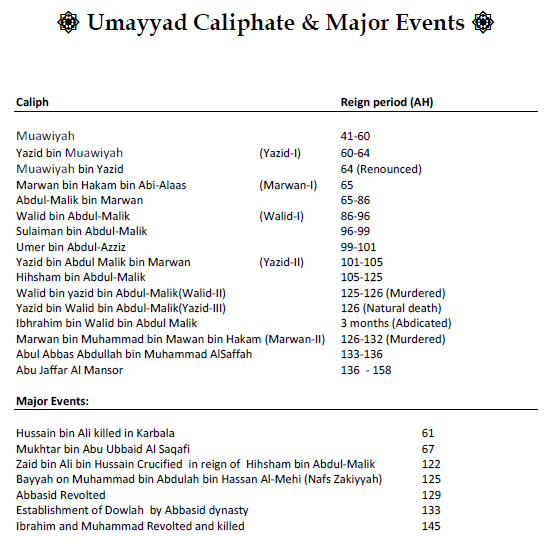
The killing of Hussain fuelled the Ghhulat movement further. Now appeared Mukhtar Al-Saqafi (d. 67 AH) on the surface, who got hold on the chair on which Ali used to sat. He lead processions in which he showed the chair and it become the object of veneration among his followers. He claimed that he would take the revenge of murder of Hussain and would kill as many people as were killed on the murder of John the Baptist[2]. His followers are called Kessaniyah and Mukhtariah. He claimed that Muhammad bin Ali also known as Muhammad bin Hanafiyah (d. 81 AH) (step brother of Hasan and Hussain) is the future leader (Imam). Muhammad bin Hanafiyah fervently denied any association with him and remained a devout Muslim. The sect of Kessaniyah even remained after the death of Muhammad bin Hanafiyah. They claimed that Muhammad had not died and living in the mountains of Ridwa. Mukhtar followed the concept of Rijah[3] introduced by Abdullah ibn Saba and introduced the concept of Bidah which means that Allah can change his previous commitments and promises.[4]
Another pseudo-religious political person was Mughaira bin Saeed (d. 119 AH) also appeared in Iraq. Ibn-Hazam wrote in Al-Mallal wan Nahal:
.. He used to live in Kufa. He was burned alive on the orders of Khalid bin Abdullah. He used to say that his Lord is a young man (Naozo billah) and his body parts are as many as letters of Al-Abjad i.e. Arabic Alphabets[5]. The famous liar and weak narrator Jabir bin Yazif Al-Jofi was the apostle of Mughaira after his death. Mughaira instructed his followers that now leader of Shiite is Muhammad bin Abdullah bin Hasan bin Hasan bin Ali bin Abi Talib i.e. grandson of Hasan may Allah pleased with him. Mughaira claimed that angels Gabriel and Michael have given oath of allegiance to Muhammad bin Abdullah between Maqam-Ibrahim and Rukun (part of Kabbah)[6]. He introduced the principal of Taweel of Quran. He claimed that in Quran, Adel (Justice) means Ali, Ashan means Fatimah, Zawil-Qurbah means Hasan and Hussain and Fahsha wal Munkae means Abu Bakr and Umer.[7]
Another deviated person was Abu Mansoor Al-Ajali (d. 119 AH). He coined the name Kisaf (cloud) for himself and claimed that in Quran he was already foretold when Allah talked about clouds. Instead of saying By Allah for oaths, he used to say by Kalimah[8]. Ibn-Hazam wrote in al-Mallal wan Nahal that:
Abu Mansoor claimed that Allah has created first Jesus son of Mary and after him Ali bin Abi Talib. He claimed that Prophethood has not ended… also his follower do not kill by inflicting cuts rather they suffocate their opponent and by this they mean that they wait till the appearance of leader (Imam). And when Imam would appear they would kill the opponents with stones and the Khabshiyah[9] with woods or sticks. One group of them claimed that Muhammad bin Abdullah bin Hasan bin Hasan is our Imam. They also claimed like Khattabiyah that Gabriel has mistakenly sent the revelation on Muhammad peace be upon him instead of Ali.
Apart from these deviated groups, Zaid bin Ali Zain-ul-Abdeen (grandson of Hussain may Allah pleased with him) was a political figure. He was not against Abu Bakr and Umer and that is why some Shiite specially the followers of Jafar Al-Baqar distanced themselves from him. Zaid called them Rawafidh i.e. one who deserted[10]. Zaid wanted the position of caliph and he confronted the Umayyad establishment and got killed in 122 AH.
Abbasid struggled against Umayyad dynasty too. They have the sizable support in Khurasan[11]. Banu Abbas spread their message through Daat i.e. Messengers. From 100 AH till 124 AH, the mission remained clandestine[12]. A strong supporter for the Abbasid movement comes from Abu Muslim al-Khurasani., who was acting as a leader of Shiite of Khurasan.
Thus there were many different groups showing their support for different peoples in the family of Bani Hashim. The summary of personalities active in political arena are:
From family of Hussain (grandson of Prophet)
1. Zaid bin Ali (Zain ul Abdeen)
2. Jafar bin Muhammad Al-Baqar bin Zain ul Abdeen
From Family of Hasan (grandson of Prophet)
3. Muhammad bin Abdullah bin Hasan bin Hasan bin Ali, Al-Mahdi
From Family of Abbas (uncle of Prophet)
4. Ibrahim bin Muhammad bin Ali bin Abdullah ibn Abbas died in year 130 AH and appointed Abul Abbas AsSaffah as a successor.
The killing of Zaid gave an impetus to all sorts of confronting groups against the caliphs of Banu Umaiyyah. In the reign of Hihsham bin Abdul-Malik, Shiite groups of all linkages (mainly Banu Hashim) gathered in Medinah and vowed on for one unanimous future leader. They showed their allegiance for Muhammad bin Abdullah bin Hasan bin Hasan bin Ali. The second Abbasid caliph Abu Jafar Al-Mansoor was also present in this meeting showing his allegiance. Abu Jafar promised that in case of success, Muhammad bin Abdullah would be the caliph. Thus with this strategic move Banu Hasan and Banu Abbas moved against Umayyad dynasty. This event occurred in 125 AH.
This whole event is reported in Maqatil Talbeen and also quoted by Abu Zahra Al-Misra in his book Imam Jafar Al-Sadique. At the eve of this auspicious occasion Abdulah bin Hasan delivered a speed and at the end of it called his son Muhammad bin Abdullah bin Hasan bin Hasan bin Ali, Al-Mahdi[13].
فهلم نبايع محمداً، فقد علمتم أنه المهدي
So pay allegiance to Muhammad, you know that he is Al- Mahdi

He become the first person in Muslim history bearing this title. Muhammad bin Abdullah also got the title of Nafs-Al-Zakiyyah (The pure spirit). It is written in Maqatil Al-Talbeen juz 1 pg 63
حتى لم يشك أحد أنه المهدي، وشاع ذلك له في العامة؛ وبايعه رجال من بني هاشم جميعاً، من آل أبي طالب، وآل العباس، وساير بني هاشم؛ ثم ظهر من جعفر بن محمد قول في أنه لا يملك، وأن الملك يكون في بني العباس،
Until nobody doubted that he is Al-Mahdi, and this (news) spread in the Masses; and all Banu Hashim pledged allegiance to him, including the family of Abi Talib, and family of Abbās, ; then appeared this statement from Ja’far ibn Muhammad that he (Muhammad bin Abdullah) would not rule and the caliph would be from Babu Abbas..
From 125 AH till 133 AH, Umayyad dynasty becomes much weaker due to internal rifts, conflicts, killings and imprisonments of each other. Masses in Muslim world wanted the change and they did not rose against the Banu Abbas forces. To save themselves, some families of Umayyad dynasty left Damascus. The armies against Umayyad dynasty wore black clothes and raised black flags. Banu Abbas supporting army came from Khursan. And attacked Damascus and destroyed the city and almost killed every individual of Umayyad dynasty remaining. As-Saffah, the leader of Banu Abbas declared himself caliph instead of Muhammad bin Abdullah and a new confrontation started which would be discussed while we go through Al-Mahdi narrations one by one.
Coming of Mahdi is certain
Coming of Mahdi is certain
It is reported in Abi Dawood (juz 12, pg 404), Musnad Ahmed, Mustadrak al-Hakim
حَدَّثَنَا عُثْمَانُ بْنُ أَبِى شَيْبَةَ حَدَّثَنَا الْفَضْلُ بْنُ دُكَيْنٍ حَدَّثَنَا فِطْرٌ عَنِ الْقَاسِمِ بْنِ أَبِى بَزَّةَ عَنْ أَبِى الطُّفَيْلِ عَنْ عَلِىٍّ – رضى الله تعالى عنه – عَنِ النَّبِىِّ -صلى الله عليه وسلم- قَالَ « لَوْ لَمْ يَبْقَ مِنَ الدَّهْرِ إِلاَّ يَوْمٌ لَبَعَثَ اللَّهُ رَجُلاً مِنْ أَهْلِ بَيْتِى يَمْلأُهَا عَدْلاً كَمَا مُلِئَتْ جَوْرًا ».
Narrated Ali that Messenger of Allah peace be upon him said If there is a day left when the World is about to end Allah will send a person from my Ahlul Bayt that would fill it with justice as it is filled with injustice.
This narration contains فِطْر بن خليفة Fitar bin Khalifa (d 135 AH) from Kufa. It is quoted in Meezan Al-Atedal, juz 3, pg 363
قال الدارقطني: لا يحتج به.
Darqutini said : Do not take his narrations.
وقال الجوزجانى: زائغ غير ثقة
Jozjani said : Deviated non-authentic
It is quoted in Lisan Al-Meezan juz 7 pg 337
وقال احمد خشبي
Ahmed said: He is from Khashbiyah
The meaning of Khashbiyah explained earlier. That they were the deviated Shiites who do not kill with sword rather use sticks and suffocation.
Name of Mahdi
Name of Mahdi
1. It is reported in Musnad Ahmed, juz 1, pg 448, Tirmidhi, juz 8, pg 453
حدثنا عبد الله حدثني أبي حدثنا عمر بن عبيد الطنافسي عن عاصم بن أبي النجود عن زر بن حبيش عن عبد الله قال قال رسول الله صلى الله عليه و سلم : لا تنقضي الأيام ولا يذهب الدهر حتى يملك العرب رجل من أهل بيتي يواطئ اسمه اسمي
Abdullah bin Masood narrated that Prophet said: The days would not end and the Age would not end (i.e. World would not end) until a person from my Ahlul-Bayt rule Arabia bearing my name.
2. Also quoted in Abi Dawood that
مِنْ أَهْلِ بَيْتِى يُوَاطِئُ اسْمُهُ اسْمِى وَاسْمُ أَبِيهِ اسْمَ أَبِى
Abdullah bin Masood narrated also :… from my Ahlul Bayt his name would be my name and his father name would be my father name.
This means the name of Al-Mahdi is Muhammad bin Abdullah!
Tirmidhi has called this Hasan narration[14]. Further it is claimed that Abi Dawood has not commented on this narration indicating he endorsed this narration[15].
The narration is reported by عاصم بن بهدلة وهو بن أبي النجود الأسدي Asim bin Bahdallah (bin Abn-Najood) (d. 128 AD). Asim is considered an authentic narrator in hadith until his last years due to disease of bad memory. In 125 AH there was the show of allegiance towards Muhammad bin Abdullah and Asim being in his state of confusion made the headline news the hadith of Prophet peace be upon him!
Probably that is why quotd in Tahzeeb al-Kamal juz 13, pg 478
Everyone with the name Asim has bad memory. كل من كان اسمه عاصم سيء الحفظ Ibn Ulliah said
Ibn Kharash said حديثه نكرة his hadith have Nakarah (against Sahih)
Dar-Qutani said: في حفظه شيء there is something in his memory
Tahzeeb-al-Tahzeeb juz 5, pg 35
Ibn- Saad said كان ثقة إلا أنه كان كثير الخطأ he is trustworthy but indeed he commit a lot of mistakes
It is thus quite clear that Al-Mahdi name is Muhammad bin Abdullah but in which lineage he is? Could be from Banu Hasan, Banu Hussein, Banu Abbas or could from lineage of Hussein’s step brother Muhammad bin Hanfiyah?
3. It is reported in Abi Dawood, juz 12 pg 397
قَالَ أَبُو دَاوُدَ حُدِّثْتُ عَنْ هَارُونَ بْنِ الْمُغِيرَةِ قَالَ حَدَّثَنَا عَمْرُو بْنُ أَبِى قَيْسٍ عَنْ شُعَيْبِ بْنِ خَالِدٍ عَنْ أَبِى إِسْحَاقَ قَالَ قَالَ عَلِىٌّ – رضى الله عنه – وَنَظَرَ إِلَى ابْنِهِ الْحَسَنِ فَقَالَ إِنَّ ابْنِى هَذَا سَيِّدٌ كَمَا سَمَّاهُ النَّبِىُّ -صلى الله عليه وسلم- وَسَيَخْرُجُ مِنْ صُلْبِهِ رَجُلٌ يُسَمَّى بِاسْمِ نَبِيِّكُمْ يُشْبِهُهُ فِى الْخُلُقِ وَلاَ يُشْبِهُهُ فِى الْخَلْقِ ثُمَّ ذَكَرَ قِصَّةَ يَمْلأُ الأَرْضَ عَدْلاً.
Abi Ishaque (Al-Sabbiyee) said Ali (bin Abi Talib) looked at his son Hasan and said My this son is chief as titled by Prophet peace be upon him- and from his lineage come out a person with the name of Prophet, similar to him (Prophet) in manners and dissimilar in appearance and then discussed the report of filling of earth with justice.
Mizzi said in Tahzeeb ul-Kamal juz 22 pg 103 that Abi Ishaque Al-Sabbiyee (d. 126 AH) narrated from
وعلي بن أبي طالب د وقيل لم يسمع منه وقد رآه
And from Ali bin Abi Talib (in Sunnan Abi Dawood) and it is said that he heard nothing from him but saw him
Thus there is a missing narrator between Ali and Abi-Ishaque Al-Sabbiyee.
Mundari said for this narration (Aoon ul-Mabood, juz 11, pg 257)
قال المنذري هذا منقطع أبو إسحاق السبيعي رأى عليا عليه السلام رؤية
Mundari said: This is broken (narration) Abi Ishaque Al-Sabbiyee saw Ali
His Lineage
Lineage of Mahdi
1. It is reported in Ibn-Majah, juz 12, pg 256 a similar kind of narration.
حَدَّثَنَا أَحْمَدُ بْنُ إِبْرَاهِيمَ حَدَّثَنَا عَبْدُ اللَّهِ بْنُ جَعْفَرٍ الرَّقِّىُّ حَدَّثَنَا أَبُو الْمَلِيحِ الْحَسَنُ بْنُ عُمَرَ عَنْ زِيَادِ بْنِ بَيَانٍ عَنْ عَلِىِّ بْنِ نُفَيْلٍ عَنْ سَعِيدِ بْنِ الْمُسَيَّبِ عَنْ أُمِّ سَلَمَةَ قَالَتْ سَمِعْتُ رَسُولَ اللَّهِ –صلى الله عليه وسلم- يَقُولُ « الْمَهْدِىُّ مِنْ عِتْرَتِى مِنْ وَلَدِ فَاطِمَةَ ». قَالَ عَبْدُ اللَّهِ بْنُ جَعْفَرٍ وَسَمِعْتُ أَبَا الْمَلِيحِ يُثْنِى عَلَى عَلِىِّ بْنِ نُفَيْلٍ وَيَذْكُرُ مِنْهُ صَلاَحًا.
Narrated Ume-Salamah, Prophet said: Al-Madi would be from my lineage in the progeny of Fatimah
It is thus further confirmed that Al-Mahdi is Muhammad bin Abdullah bin Hasan bin Hasan .i.e the great grandson of Fatimah may Allah be pleased with her.
The narration contains زِيَادِ بْنِ بَيَانٍ (Zayyad bin Bayan), which is a weak narrator. He has heard this narration from Ali bin Nufail.
Ibn-Habban said in Majroheen (juz 1, pg 307)
زياد بن بيان سمع على بن نفيل في إسناده نظر.
Zayyad bin Bayan heard from Ali bin Nufail its sanad must be looked into
Bukhari said in Tahreek al-Kabeer, juz 3 pg 346
سمع على بن نفيل جد النفيلى سمع سعيد بن المصيب عن ام سلمة زوج النبي صلى الله عليه وسلم عن النبي صلى الله عليه وسلم: المهدى حق وهو من ولد فاطمة، قال أبو عبد الله: في اسناده نظر
(Zayyad bin Bayan) heard from Ali bin Nufail … heard Ume-Salamah wife of Messenger of Allah peace be upon him: Al-Mahdi is certain from the family of Fatimah: Abu Abdullah (Bukhari) said its sand must be looked into.
The term اسناده نظر actually used when Muhaddis would like to criticise the narrator. Dahabi has quoted this narration Mughni fi Doafa (book on weak narrators) and said the narrations from him are not Sahih . Muhammad bin Abdullah bin Hasan bin Hasan was from linage of Ali and Fatimah. The narration thus in a way ruled out Abbasid and Muhammad bin Hanfiyah‘s claim of caliphate. The narration thus most likely manufactured by supporters of Muhammad bin Abdullah.
2. It is reported in Ibn-Majah, juz 12, pg 256
حَدَّثَنَا هَدِيَّةُ بْنُ عَبْدِ الْوَهَّابِ حَدَّثَنَا سَعْدُ بْنُ عَبْدِ الْحَمِيدِ بْنِ جَعْفَرٍ عَنْ عَلِىِّ بْنِ زِيَادٍ الْيَمَامِىِّ عَنْ عِكْرِمَةَ بْنِ عَمَّارٍ عَنْ إِسْحَاقَ بْنِ عَبْدِ اللَّهِ بْنِ أَبِى طَلْحَةَ عَنْ أَنَسِ بْنِ مَالِكٍ قَالَ سَمِعْتُ رَسُولَ اللَّهِ -صلى الله عليه وسلم- يَقُولُ « نَحْنُ وَلَدَ عَبْدِ الْمُطَّلِبِ سَادَةُ أَهْلِ الْجَنَّةِ أَنَا وَحَمْزَةُ وَعَلِىٌّ وَجَعْفَرٌ وَالْحَسَنُ وَالْحُسَيْنُ وَالْمَهْدِىُّ »
Narrated Aans bin Malik that he heard Messenger of Allah peace be upon him said We are sons of Abdul-Muttalib, the chiefs of people of Heavens Hamza and I and Ali and Jafar and Hasan and Hussain and Al-Mahdi
The narrations thus tried to clarify that Al-Mahdi would not be in the lineage of Abbas, so Abbas in completely ruled out from the list of holy people which would be the chiefs of Paradise.
There is a narrator عَلِىِّ بْنِ زِيَادٍ الْيَمَامِىِّ (d. AH ) is an unknown narrator. Al-Mizzi said in Tahzeeb al-Kamal, juz 20, pg 433 ولم يذكروا علي بن زياد no one has discussed Ali bin Zyad. Dahabi said in Meezan Al-Ateedal juz 3 pg 127 لا يدرى من هو I don’t know who is he!
But Ibn-Hajar said in Taqreeb Al-Tahzeeb, juz, pg
علي بن زياد اليمامي عن عكرمة بن عمار عن إسحاق بن عبدالله بن أبي طلحة عن أنس حديث نحن ولد عبدالمطلب سادة أهل الجنة الحديث روى حديثه ابن ماجة عن هدبة بن عبد الوهاب عن سعد بن عبدالحميد بن جعفر عنه والصواب أنه عبدالله بن زياد فقد ذكره البخاري
Ibn-Hajar first quoted this narration then said the correct is that he is Abdullah bin Zyad as discussed by Bukhari. He further said stated his opinion:
قلت: هو أبو العلاء عبدالله بن زياد فلعله كان في الاصل ثنا أبو العلاء بن زياد فتغيرت فصارت علي بن زياد وعبد الله بن زياد هذا ذكره البخاري فقال منكر الحديث ليس بشئ ولم يذكر ابن أبي حاتم فيه جرحا وذكره ابن حبان في الطبقة الرابعة من الثقات وروى أيضا عن علي بن زيد بن جدعان وهشام بن عروة وغيرهما وروى عنه أيضا صالح بن عبد الكبير الحبحابي وغيره وذكره العقيلي في الضعفاء.
I say: He is Abu Alla Abdullah bin Zyad and it is possible that in originality it is narrated from Abu Alla bin Zyad but changed and become Ali bin Zyad. And Abdullah bin Zyad is discussed by Bukhari and Bukhari called him Munkar-Al-Hadith, nothing (whereas) Ibn Abi Hatim has not quoted any Jirah on him and Ibn-Habban has placed him in fourth category of siqah narrators and he has also narrated from Ali bin Zaid bin Jadyan and Hashsham bin Urwa and others and narrated from him also Salah bin Abdul Kabeer Al-Hijabi and others and Uqaili has discussed him in Duafa (book on weak narrators).
Therefore this narration is quoted by a weak narrator or an unknown narrator and should not be considered Sahih
His Reconciliation?
Reconciliation of Mahdi
It is reported in Ibn-Majah , juz 12 ,pg 255; Musnad Ahmed, juz 1, pg 84;
حَدَّثَنَا عُثْمَانُ بْنُ أَبِى شَيْبَةَ حَدَّثَنَا أَبُو دَاوُدَ الْحَفَرِىُّ حَدَّثَنَا يَاسِينُ عَنْ إِبْرَاهِيمَ بْنِ مُحَمَّدِ ابْنِ الْحَنَفِيَّةِ عَنْ أَبِيهِ عَنْ عَلِىٍّ قَالَ قَالَ رَسُولُ اللَّهِ -صلى الله عليه وسلم- « الْمَهْدِىُّ مِنَّا أَهْلَ الْبَيْتِ يُصْلِحُهُ اللَّهُ فِى لَيْلَةٍ
Muhammad bin Hanafiyah narrated from his father Ali that Messenger of Allah peace be upon him said: Al-Mahdi is from my Ahlul-Bayt, Allah would rectify (his deeds) in one night.
The narrator ياسين بن شيبان العجلى is weak narrator. Ibn-Habban said in Al-Majroheen, juz 3 pg 143
ياسين العجلى: شيخ من أهل الكوفة يروى عن إبراهيم بن محمد بن الحنفية، روى عنه أهل الكوفة، منكر الحديث
Yaseen Al-Ajali: An old man of Kufa, narrated from Ibrahim bin Muhammad bin Hanafiyah narrated from him the people of Kufa, is Munkar-al-Hadith
It is quoted in Al-Kamil Ibn-Addi , juz 7 pg 185
قال بن يمان سمعت سفيان يسأل ياسين عن هذا الحديث وياسين العجلي هذا يعرف بهذا الحديث المهدي
Ibn-Yaman said I heard Sufyan (Al-Thori) questioned Yaseen about this hadith and Yaseen Al-Ajali is known for this hadith of Al-Mahdi
Bukhari has quoted this narration in Tahreek- Al-Kabeer and said فيه نظر i.e. be careful!
Ibn-Jawzi has included this narration in the list of manufactured narrations in his book Al-Illal Al-Muntanahiyyah fil Hadith al-Wahiya العلل المتناهية في الأحاديث الواهية . Qaisarani has also included it into his work on Madoaat i.e. Book on concocted narrations.
This narration tried to exclude Muhammad bin Hanfiyah from claim of Al-Mahdi as claimed by Mukhtariyah or Kesaniyah. So it is reported that Muhammad bin Hanfiyah heard from Ali otherwise he could have inform that Ali told him that he would be future Al-Mahdi. Yaseen has attributed this narration to Muhammad bin Hanafiyah and thus subterfuge the followers of Muhammad bin Hanafiyah.
His Appearence
Appearance of Mahdi
It is reported in Sunan Abi Dawood and Al-Hakim juz 20 pg 80 that
حَدَّثَنَا سَهْلُ بْنُ تَمَّامِ بْنِ بَزِيعٍ حَدَّثَنَا عِمْرَانُ الْقَطَّانُ عَنْ قَتَادَةَ عَنْ أَبِى نَضْرَةَ عَنْ أَبِى سَعِيدٍ الْخُدْرِىِّ قَالَ قَالَ رَسُولُ اللَّهِ -صلى الله عليه وسلم- « الْمَهْدِىُّ مِنِّى أَجْلَى الْجَبْهَةِ أَقْنَى الأَنْفِ يَمْلأُ الأَرْضَ قِسْطًا وَعَدْلاً كَمَا مُلِئَتْ جَوْرًا وَظُلْمًا يَمْلِكُ سَبْعَ سِنِينَ ».
Narrated Abi Saeed al-Khudri that Messenger of Allah peace be upon him said: Al-Mahdi is from me with wide forehead and straight nose and would fill the Earth with Justice and Balance as it had been filled with oppression and injustice. In Mustadrak Al-Hakim’s narration it is further reported that he would live seven years afterwards.
This narration is reported by عمران القطان Imran al-Qattan (d. between 160-170 AH), who was one of the stalwart supporers of Muhammad bin Abdulah Al-Mahdi.
In Tahrikh Yahyah bin Moin juz 2, pg 113 it is quoted
سمعت يحيى يقول عمران القطان كان يرى رأي الخوارج ولم يكن داعية
Dowri said I heard Yahyah bin Moin: Imran Al-Qattan hold the views of Khwarij, although he does not preach them.
In Tahrikh Yahyah bin Moin juz 2, pg 125 it is quoted
سمعت يحيى يقول عمران القطان ليس بشئ قلت هو أحب إليك أو أبو هلال قال أبو هلال
Dowri said I heard Yahyah bin Moin said: Imran Al-Qattan is nothing, I asked who would you prefer, Abu Hilal or Imran? He replied Abu Hilal
Tahzeeb al-Tahzeeb, juz 9 pg 173: Nisai said ليس بالقوي Not a strong narrator.
Tahzeeb al-Kamal, juz pg , Abi Dawood said :
ضعيف أفتى في أيام إبراهيم ابن عبدالله بن حسن بفتوى شديدة فيها سفيك دماء.
Weak, decreed during (the rising) days of Ibrahim bin Abdullah bin Hasan very strongly which has blood flowing (i.e. killing).
Dahabi has quoted the statement in Seer Alla al-Nublah, juz 7 pg 280
يزيد بن زريع: كان عمران القطان حروريا
Yazeed bin Zurrray said that Imran belonged to sect of Harwariyah[16]
Imran Qattan was actually a strong supporter of Muhammad bin Abdullah Al-Mahdi. Muhammad bin Abdullah was deceived by the Banu Abbas who took the caliphate and did not made Muhammad Al-Mahdi the caliph. Muhammad revolted against Banu Abbas in 145 AH. He was killed in battle. Later his brother Ibrahim bin Muhammad bin Abdullah also killed. In those days Ibrahim asked Imran Al-Qattan to give Fatwah on killing of Muslims, which he gave. In one of the narrations in Musnad Abi Yalah it is quoted that (juz 6 pg 499 )
قال يزيد : وكان عمران حروريا ، وكان يرى السيف على أهل القبلة ، وكان إبراهيم لما خرج إلى البصرة فطلب الخلافة ولاه خراج الفرات ، قال وكان إبراهيم استفتاه في شيء فأفتاه عمران فيه بفتيا ، فأفتى إبراهيم رجالا يقول عمران : قتلوا كلهم
Yazeed (bin Zurray) said and Imran belonged to Harwariyah and he stretched the sword against Ahlul-Qiblah and when the Ibrahim went to Basra to seek Caliphate he took control of outlying areas of Euphrates. (Yazeed) said and Ibrahim asked (Imran) for a decree on some thing and he gave Fatwah and Ibrahim passed this to his people that Kill them all.
Ibn-Hajar said in Tahzeeb al-Tahzeeb, juz 8 pg 116
قال يزيد كان إبراهيم يعنى بن عبد الله بن حسن لما خرج يطلب الخلافة استفتاة عن شيء فأفتاه بفتيا قتل بها رجال مع إبراهيم انتهى وكان إبراهيم ومحمد خرجا على المنصور في طلب الخلافة لأن المنصور كان في زمن بني أمية بايع محمدا بالخلافة فلما زالت دولة بني أمية وولي المنصور الخلافة تطلب محمدا ففر فالح في طلبه فظهر بالمدينة وبايعه قوم وأرسل أخا إبراهيم إلى البصرة فملكها وبايعه قوم فقدر إنهما قتلا وقتل معهما جماعة كثيرة وليس هؤلاء من الحرورية في شيء
Yazeed (bin Zuray) said Ibrahim means bin Abdullah bin Hasan when came out for the desire of caliphate, he acquired the decree from him (Imran) on something, so he (Imran) decreed on the basis of that Ibrahim and his people killed and Ibrahim and (his brother Muhammad) did the Khurooj against the Al-Mansor for the desire of caliphate because Mansor had give his allegiance to Muhammad during the reign of Banu Ummiyah and when the Umayyad rule is declined and Mansor become the ruler he pursued Muhammad and Muhammad ran off then later he (Muhammad bin Abdullah) appeared in Medinah and people gave their allegiance to him and he (Muhammad) sent off his brother Ibrahim to Basra where he took control and people gave him allegiance there and they killed and with them (i.e. with Ibrahim ) many people got killed and this has nothing to do with Hurwariyah.
It is quoted in Al- Mukhtasar fi Akhbar il Bashr – Khilafat Masoor on pg 149
ثم دخلت سنة خمس وأربعين ومائة فيها ظهر محمد بن عبد الله بن الحسن ابن الحسين بن علي بن أبي طالب، واستولى على المدينة، وتبعه أهلها، فأرسل المنصور ابن أخيه عيسى بن موسى إِليه، فوصل إِلى المدينة، وخندق محمد ابن عبد الله على نفسه، موضع خندق رسول الله صلى الله عليه وسلم للأحزاب، وجرى بينهما قتال، آخره أن محمد بن عبد الله المذكور، فتل هو وجماعة من أهل بيته وأصحابه، وانهزم من سلم من أصحابه، وكان محمد المذكور، سميناً أسمر شجاعاً، كثير الصوم والصلاة، وكان يلقب المهدي، والنفس الزكية، ولما قتل محمد، أقام عيسى بن موسى بالمدينة أياماً، ثم سار عنها في أواخر رمضان يريد مكة معتمراً.
Then came the year One hundred and forty five (i.e. 145 AH) when the Mohammad bin Abdullah bin Hassan bin Hasan bin Ali bin Abi Talib rose (against Banu Abbas), and took control of Medinah, (this act) supported by his family, Al- Mansour sent his nephew Isa bin Moussa (too crush the rebels). He arrived at Medinah and Mohammed Ibn Abdullah made trench around city exactly where Messenger of Allah peace be upon him trenched, and both the parties fought until Muhammad Ibn Abdullah killed along with the group of his family and his companions, … and Muhammad was was nicknamed Al- Mahdi… (Afterwards) Isa bin Musa ruled Medinah then went in late Ramadan to Mecca to perform Umrah.
It is quoted in Sawalat Al-Ajari juz 1 pg 94
وكان سفيان يتكلم في عبد الحميد بن جعفر لخروجه مع محمد بن عبد الله بن حسن وسفيان يقول وان مر بك المهدي وأنت في البيت فلا تخرج اليه حتى يجتمع الناس وذك
Abi Dawood said: Sufiyan (Al-Thori) talked about Abdul-Hameed bin Jaffar and his khrooj with Muhammad bin Abdullah bin Hasan and Sufiyan said If the Mahdi passed by you and you are in house then do not go out until people gathered.
Sufiyan Al-Thori was thus instructing Abdul-Hameed bin Jafar to be careful in this situation.
It is clear that a staunch supported of Muhammad bin Abdullah and his brother Ibrahim has reported this narration. There is no doubt left but to believe that he has concocted this narration to gain political support for Muhammad bin Abdullah al-Mahdi
Eastern Support for him
Supporters of Mahdi come from East
It is reported in Ibn- Majah juz 12 pg 256
حَدَّثَنَا حَرْمَلَةُ بْنُ يَحْيَى الْمِصْرِىُّ وَإِبْرَاهِيمُ بْنُ سَعِيدٍ الْجَوْهَرِىُّ قَالاَ حَدَّثَنَا أَبُو صَالِحٍ عَبْدُ الْغَفَّارِ بْنُ دَاوُدَ الْحَرَّانِىُّ حَدَّثَنَا ابْنُ لَهِيعَةَ عَنْ أَبِى زُرْعَةَ عَمْرِو بْنِ جَابِرٍ الْحَضْرَمِىِّ عَنْ عَبْدِ اللَّهِ بْنِ الْحَارِثِ بْنِ جَزْءٍ الزُّبَيْدِىِّ قَالَ قَالَ رَسُولُ اللَّهِ -صلى الله عليه وسلم- « يَخْرُجُ نَاسٌ مِنَ الْمَشْرِقِ فَيُوَطِّئُونَ لِلْمَهْدِىِّ ». يَعْنِى سُلْطَانَهُ.
Abdullah bin Harith bin Juz Al-Zubaidi narrated that Messenger of Allah peace be upon him said People from East will come out and pave the way for Al-Mahdi
The narrators عَمْرِو بْنِ جَابِرٍ الْحَضْرَمِىِّ and ابْنُ لَهِيعَةَ both are weak narrators. Ahmed said in Al-Illal, juz 3 pg 146
بلغني أن عمرو بن جابر الحضرمي الذي حدث عنه بن لهيعة وسعيد بن أبي أيوب كان يكذب
It reached me that Amr bin Jabir Al-Hadrami, one from whom Ibn-Lahyah and Saeed bin Abi Ayoob narrated, was telling lies
This narration is also reported by Ibn Lahyah from Amr bin Jabir! It is reported in Tahzeeb Al-Kamal, juz 21 pg 559
سعيد بن أبي مريم قلت لابن لهيعة من عمرو بن جابر هذا قال شيخ منا أحمق كان يقول إن عليا في السحاب
Saeed bin Abi Maryam told: I asked Ibn Lahyah who is this , Amr bin Jabir? He replied An old stupid fellow who says that Ali (bin Abi Talib) is in clouds!
(For concept regarding Ali’s dwelling in clouds see the booklet Confluence of Streams)
It is reported in Mustadrak al-Hakim juz 19 pg 324; Ibn – Maja, juz 12, pg 253 also reported in Musnad Ahmed juz 5, pg 277
أخبرنا أبو عبد الله الصفار ، ثنا محمد بن إبراهيم بن أرومة ، ثنا الحسين بن حفص ، ثنا سفيان ، عن خالد الحذاء ، عن أبي قلابة ، عن أبي أسماء ، عن ثوبان رضي الله عنه ، قال : قال رسول الله صلى الله عليه وسلم : « يقتتل عند كنزكم ثلاثة كلهم ابن خليفة ، ثم لا يصير إلى واحد منهم ، ثم تطلع الرايات السود من قبل المشرق فيقاتلونكم قتالا لم يقاتله قوم – ثم ذكر شيئا فقال – إذا رأيتموه فبايعوه ولو حبوا (1) على الثلج ، فإنه خليفة الله المهدي »
Narrated Thobban that Messenger of Allah peace be upon him said: There would fight near your treasure, all three would be the sons of caliphs but no body would get hold of this treasure (until) appear the flags of black cloth from East, they would flight you like no one did before – and then he said something with narrator did not remember – so when you notice them then give your allegiance even if you are dragged on ice, as there would be caliph of Allah Al-Mahdi among them.
The narrator Khalid Al-Hadha (خالد الحذاء) (d. 141 AH) from Basra is a weak narrator.
Ahmed said in Al-Illal , juz 2, pg 325
حدثني أبي قال قيل لابن علية في هذا الحديث فقال كان خالد يرويه فلم يلتفت إليه ضعف بن علية أمره يعني حديث خالد عن أبي قلابة عن أبي أسماء عن ثوبان عن النبي صلى الله عليه وسلم في الرايات
My father (Ahmed bin Hanbal) narrated that he asked Ibn-Ulliyah about this hadith He said Khalid narrated that and do not consider it, Ibn-Ulliyah declared it weak the hadith which Khalid narrated from Abi Qallabah from Abi Asma from Thoban from Messenger of Allah about the flags
Dahabi has also quoted this narration in Meezan Al-Atedal and said
قلت: أراه منكرا
I say: I take it as munkar narration
It is also reported with another chain in Musnad Ahmed, juz 5 , pg 277
حدثنا عبد الله حدثني أبي ثنا وكيع عن شريك عن على بن زيد عن أبي قلابة عن ثوبان قال قال رسول الله صلى الله عليه و سلم : إذا رأيتم الرايات السود قد جاءت من قبل خراسان فائتوها فان فيها خليفة الله المهدي
The narrator Ali bin Zaid bin Jadan علي بن زيد بن جدعان (d. 129 AH) is a weak narrator. Yahyah bin Moin, Abu Hatim, Abu Zaraa and Al-Ajili said ليس بذاك القوي i.e. He is not that trustworthy. Jozjani said واهي الحديث report useless narrations (see Tahzeeb ul-Kamal, juz 20, pg 434)
It is informed in this narration that there would be a fight between three person all sons of caliphs. After the demise of caliph Yazid bin Waleed bin Abdul-Malik (d 126 AH), Ibrahim bin Waleed become caliph for three months. He imprisoned and killed the sons of Yazid bin Waleed. In year 129 AH Abbasid revolted and appeared from Khurasan with black flags.
This narration actually informs that supporter of Al-Mahdi would come from East with black flags. It thus gave hint to listener the Abbasid uprising in Khurasan. Ibn-Abari writes in Tahrikh Mukhtasar Al-Dowal ( تاريخ مختصر الدول ) juz 1 pg 64
وفي سنة تسع وعشرين ومائة بعث ابراهيم الامام إلى أبي مسلم بلواء يدعى الظل وراية تدعى السحاب فعقدهما على رمحين وأظهر الدعوة العباسية بخراسان وتأول الظل والسحاب أن السحاب يطبق الأرض وكما أن الأرض لا تخلو من الظل كذلك لا تخلو من خليفة عباسي آخر الدهر
In the year hundred and twenty-nine (129 AH) sent Ibrahim Al-Imam (Abbasid revolutionary) a flag named Zil and flag called Sahab (cloud) to Abu Muslim, both were raised on Spears and appeared the Abbasid uprising in Khorasan and it is interpreted that as Earth is not free from shadow and cloud so Abbasid Caliph would last forever.
In Marifa wal-Tarikh juz 1, pg 15 Abdullah bin Mubarrak said that
قال ابن المبارك: ذاكرني عبد الله بن إدريس السن فقال: ابن كم أنت ؟ فقلت: إن العجم لا يكادون يحفظون ذلك ولكن أذكر أني ألبست الساد وأنا صغير عندما خرج أبو مسلم. قال: فقال لي: وقد ابتليت بلبس السواد ! قلت: إني كنت أصغر من ذلك، كان أبو مسلم أخذ الناس كلهم بلبس السواد الصغار والكبار.
Ibn Al-Mubaarak: Abdullah bin Idris asked me about age, and said: O boy how old are you ? I said: the Non-Arabs barely keep this (record) but I remember I wore black clothes when I am small when Abu Muslim revolted. He said: (Oh) you were involved in this wearing of black! I said I was small, it was Abu Muslim (who forced ) people all wearing black, young and old.
Treasure of Kabbah
Treasure of Kabbah?
It is reported in Musnad Ahmed, juz 18 , pg 382
حَدَّثَنَا عَبْدُ اللَّهِ حَدَّثَنِى أَبِى حَدَّثَنَا الْحُسَيْنُ بْنُ مُحَمَّدٍ أَخْبَرَنَا ابْنُ أَبِى ذِئْبٍ عَنْ سَعِيدِ بْنِ سَمْعَانَ أَنَّه سَمِعَ أَبَا هُرَيْرَةَ يُخْبِرُ أَبَا قَتَادَة أَنَّ النَّبِىَّ -صلى الله عليه وسلم- قَالَ « يُبَايَعُ لِرَجُلٍ بَيْنَ الرُّكْنِ وَالمَقَامِ وَلَنْ يَسْتَحِلَّ هَذَا الْبَيْتَ إِلاَّ أَهْلُهُ فَإِذَا اسْتَحَلُّوهُ فَلاَ تَسْأَلْ عَنْ هَلَكَةِ الْعَرَبِ ثُمَّ تَأْتِى الْحَبَشَةُ فَيُخَرِّبُونَهُ خَرَاباً لاَ يَعْمُرُ بَعْدَهُ أَبَداً وَهُمُ الَّذِينَ يَسْتَخْرِجُونَ كَنْزَهُ
Abu Qattadah informed that Messenger of Allah peace be upon him said: Pay allegiance to the man between the Rukun and the Maqam and it is not permissible for this House (Kabbah) except for the (keepers’s) family[17] if they allow him, then don’t question the destruction of Arabs and then comes (people from) Abyssinia, who would vandalize it and it would not be established afterwards and they extract its (Kabbah) treasure.
The narrator is سَعِيدِ بْنِ سَمْعَانَ , who is a weak narrator. Dahabi said in Meezan Al-Atedal, juz 2, pg 143
فيه جهالة. ضعفه الازدي، وقواه غيره. وقال النسائي: ثقة.
He is unknown, Al-Azdhi has weakened him and other supported him and Nisai said Authentic
About the treasure inside Kabbah, it is reported in Muqadmah Ibn- Khuldoon juz 1 pg 198 that
وقد وجد رسول الله صلى الله عليه وسلم حين افتتح مكة في الجب الذي كان فيها، سبعين ألف أوقية من الذهب، مما كان الملوك يهدون للبيت قيمتها ألف ألف دينار مكررة مرتين بمائتي قنطار وزناً.
The day Messenger of Allah peace be upon him conquered Makkah he found in the pit there (in Kabbah) Seventy thousand ounces of gold, which were donated by Kings for the House (Kabbah) worth thousand, thousand dinars duplicated twice , 200 Qintar by weight.
It is reported in Sahih Muslim, juz 4 pg 97
حَدَّثَنِى أَبُو الطَّاهِرِ أَخْبَرَنَا عَبْدُ اللَّهِ بْنُ وَهْبٍ عَنْ مَخْرَمَةَ ح وَحَدَّثَنِى هَارُونُ بْنُ سَعِيدٍ الأَيْلِىُّ حَدَّثَنَا ابْنُ وَهْبٍ أَخْبَرَنِى مَخْرَمَةُ بْنُ بُكَيْرٍ عَنْ أَبِيهِ قَالَ سَمِعْتُ نَافِعًا مَوْلَى ابْنِ عُمَرَ يَقُولُ سَمِعْتُ عَبْدَ اللَّهِ بْنَ أَبِى بَكْرِ بْنِ أَبِى قُحَافَةَ يُحَدِّثُ عَبْدَ اللَّهِ بْنَ عُمَرَ عَنْ عَائِشَةَ زَوْجِ النَّبِىِّ -صلى الله عليه وسلم- أَنَّهَا قَالَتْ سَمِعْتُ رَسُولَ اللَّهِ -صلى الله عليه وسلم- يَقُولُ « لَوْلاَ أَنَّ قَوْمَكِ حَدِيثُو عَهْدٍ بِجَاهِلِيَّةٍ – أَوْ قَالَ بِكُفْرٍ – لأَنْفَقْتُ كَنْزَ الْكَعْبَةِ فِى سَبِيلِ اللَّهِ وَلَجَعَلْتُ بَابَهَا بِالأَرْضِ وَلأَدْخَلْتُ فِيهَا مِنَ الْحِجْرِ »
Aisha narrated that she heard Messenger of Allah peace be upon him said have your nation been not close to Jahiliah or Kufr age I would have distributed the treasure of Kabbah in the Way of Allah and would have made the door of Kabbah close to earth and would not enter it by Stone.
Prophet peace be upon him has not distributed this treasure of Kabbah and it remained there till 199 AH.
Ibn-Khuldoon reported that in Muqadmah ( juz 1 pg 198 )
وأقام ذلك المال إلى أن كانت فتنة الأفطس، وهو الحسن بن الحسين بن علي بن علي زين العابدين سنة تسع وتسعين ومائة، حين غلب على مكة عمد إلى الكعبة فأخذ ما في خزائنها وقال: ما تصنع الكعبة بهذا المال موضوعاً فيها لا ينتفع به، نحن أحق به نستعين به على، حربنا، وأخرجه وتصرف فيه وبطلت الذخيرة من الكعبة من يومئذ
And it (treasure) remained there till the Fitnah of Aftas- i.e. in 199 AH when Hussain bin Hussain bin Ali bin Ali Zain ul Abdeen intentionally took over Makkah and took out the treasure from Kabbah and said: What Kabbah has to do with this money? It’s a stuff that does not benefit, We are more deserving of it, We fight (in way of Allah)! He took it out and used it and destroyed the treasure of Kabbah on that day.
Therefore the treasure of Kabbah was there in the time of narrator but not after 199 AH, which also indicate that these narrations were fabricated by avarice and greed narrators who unabashedly reported such narrations. Is this narration worthy to be called the statement of Prophet Peace be upon him?
Supporters not from East
Supporters of Mahdi- not from East
It is reported in Musnad Ibn-Maja, juz 2 pg 1366
حدثنا عثمان بن أبي شيبة . حدثنا معاوية بن هشام . حدثنا علي بن صالح عن يزيد ابن أبي زياد عن إبراهيم عن علقمة عن عبد الله قال بينما نحن عند رسول الله صلى الله عليه و سلم إذ أقبل فتية من بني هاشم . فلما رآهم النبي صلى الله عليه و سلم اغرورقت عيناه وتغير لونه . قال فقلت ما نزال نرى في وجهك شيئا نكرهه . فقال : ( إنا أهل بيت اختار الله لنا الآخرة على الدنيا . وإن أهل بيتي سيلقون بعدي بلاء وتشريدا وتطريدا . حتى يأتى قوم من قبل المشرق معهم رايأت سود . فيسألون الخير فلا يعطونه . فيقاتلون فينصرون . فيعطون ما سألوا . فلا يقبلونه . حتى يدفعوها إلى رجل من أهل بيتي فيملؤها قسطا . كما ملؤوها جورا . فمن أدرك ذلك منكم فليأتهم ولو حبوا على الثلج )
Narrated Abdullah ibn Masood that we were with Messenger of Allah peace be upon him that a group of Bani Hashim came. Prophet started crying by looking at them and his countenance changed. We asked O Messenger of Allah We see the signs of undesirable thing on your face. He said We Alhlul Bayt have opted for Hereafter instead of this World and after my death my Ahlul Bayt would receive scourge and rejection until come people from East with black flags. You would ask them (favours), but they would not give them. They would fight them and they (people of East) would be helped (by Allah). They give what they asked for. But people would not accept them (as rulers). Until they call (masses) towards a man from the people of my house, who would fill Earth with justice as they fill her up with oppression. So whoever can reach them must reach them even if dragged on ice.
The main narrator of this report is Yazeed bin Abi Zyad يزيد ابن أبي زياد (d 137 AH) from Kufa. For him, It is quoted in Tabaqat Al-Huffaz, juz 1 pg 10 : قال أحمد: لم يكن بالحافظ.
Ahmed said not a hafiz. Ibn- Habban said in Majroheen juz 3 pg 101 that
Yahyah bin moin said ليس بالقوى. And Ahmed said Daeef
Dahabi said in Meezan juz 4, pg 423 that
وقال وكيع: يزيد ابن أبى زياد عن إبراهيم، عن علقمة، عن عبدالله – يعنى حديث الرايات – ليس بشئ.
Wakee said: Yazeed bin Abii Zyad from Ibrahim from Alqamah from Abdullah – means hadith of flags- is nothing
وقال أحمد: حديثه ليس بذلك، وحديثه عن إبراهيم – يعنى في الرايات – ليس بشئ.
And Ahmed said his hadith is not like that and his hadith from Ibrahim – means about flags- is nothing
قلت: هذا ليس بصحيح، وما أحسن ما روى أبو قدامة: سمعت أبا أسامة يقول في حديث يزيد عن إبراهيم في الرايات: لو حلف عندي خمسين يمينا قسامة ما صدقته، أهذا مذهب إبراهيم ! أذها مذهب علقمة ! أهذا مذهب عبدالله.
Dahabi said: this narration is not authentic and what a nice is reported from Abu Qudammah he heard from Abu Usamah said about the hadith of Yazeed from Ibrahim about the flags: Even if fifty people take an oath in front of me and say that he said this- I won’t accept that- is this the faith of Ibrahim? Is this the faith of Alqamah? Is this the faith of Abdullah (ibn Masood)?
War between East & Syria
War between East and Syrians
In year 132 AH Abbasid took the caliphate. The following year one Ummayad survivor with the name of Al-Sufyani appeared. It is reported in Tahrikh Yaqobi by Ahmad al-Ya’qubi (d. 284 AH) , juz ,pg that
وخرج أبو محمد السفياني، وهو يزيد بن عبد الله بن يزيد بن معاوية بن أبي سفيان، بما لديه……… ، وكان ذلك سنة 133.
And appeared Abu Muhammad Al-Sufiyani, and he is Yazid bin Abdullah bin Yazid bin Muawiyah bin Abu Sufyan .. and this occurred in year 133 AH
It is reported in Mustadrak al-Hakim juz 4 pg 565
حدثنا أبو محمد أحمد بن عبد الله المزني ثنا زكريا بن يحيى الساجي ثنا محمد بن إسماعيل بن أبي سمينة ثنا الوليد بن مسلم ثنا الأوزاعي عن يحيى بن أبي كثير عن أبي سلمة عن أبي هريرة رضي الله عنه قال :
قال رسول الله صلى الله عليه و سلم : يخرج رجل يقال له السفياني في عمق دمشق و عامة من يتبعه من كلب فيقتل حتى يبقر بطون النساء و يقتل الصبيان فتجمع لهم قيس فيقتلها حتى لا يمنع ذنب تلعة و يخرج رجل من أهل بيتي في الحرة فيبلغ السفياني فيبعث إليه جندا من جنده فيهزمهم فيسير إليه السفياني بمن معه حتى إذا صار ببيداء من الأرض خسف بهم فلا ينجو منهم إلا المخبر عنهم
Abu Hurrairah narrated that Messenger of Allah peace be upon him said
A man called Sufiyani will come from centre of Damascus and most of people that would follow him would be from (Banu) Kalb, he would kill even women and disembowels them and would kill boys and then (to confront him ) gathered (Banu) Qais, They would fight him and he would kill them. Then comes out a man from the people of my home from Hirrah and Sufiyani would send the army to defeat him but he (Al-Mahdi) would defeat them. Then he (Sufiyani) would come with people until he would reach Baidah and he would be swallowed by earth and no body from them would be saved except one who would inform about this (event).
The narrators have used the spun on the name of Abu-Sufiyan who was the father of Muawiyah and thus represent the Umayyad dynasty in Damascus. Banu Kalb, an Arabian clan, has received much importance in the era of Yazid bin Abdul Malik. In his era the governor of Iraq Mansoor bin Jamhoor was also from Banu Kalb. Also in narration it is showed that Al-Mahdi would be a weak person. This is contradictory to narrations which state that his supporters would come from Khurasan.
Abundence of Wealth
Abundance of wealth
1. It is reported in Mustadrak al-Hakim juz 20 pg 83 and Ibn Majah that:
أخبرني أبو العباس محمد بن أحمد المحبوبي بمرو ، ثنا سعيد بن مسعود ، ثنا النضر بن شميل ، ثنا سليمان بن عبيد ، ثنا أبو الصديق الناجي ، عن أبي سعيد الخدري رضي الله عنه ، أن رسول الله صلى الله عليه وسلم ، قال : « يخرج في آخر أمتي المهدي يسقيه الله الغيث (1) ، وتخرج الأرض نباتها ، ويعطي المال صحاحا ، وتكثر الماشية وتعظم الأمة ، يعيش سبعا أو ثمانيا » يعني حججا
Abi Saeed al-Khudari said that Messenger of Allah peace be upon him said
Al-Mahdi will Come out in the end of my Ummah , Allah would pour rain over the Earth and it would grow its plants and money will be given to deserving, and livestock and the pride of the nation would increase, he would live seven or eight years
It is reported by Abu-Siddique Al-Naji أبو الصديق الناجي بكر بن عمرو (d. 180 AH). He is also called بكر بن قيس . In general he is considered as a siqah narrator but Ibn Saad said in Tabaqat
قال: ويتكلمون في أحاديثه ويستنكرونها
Said: they talked about his narrations and reject them
This narration from Abu Siddique Al-Najai is heard by very weak narrators like Zayd al-Ammi, Maqatil bin Hayyan, Auf bin Abi Jamilah etc.
It is reported in Ibn-Maja, juz 12, pg 253
حَدَّثَنَا نَصْرُ بْنُ عَلِىٍّ الْجَهْضَمِىُّ حَدَّثَنَا مُحَمَّدُ بْنُ مَرْوَانَ الْعُقَيْلِىُّ حَدَّثَنَا عُمَارَةُ بْنُ أَبِى حَفْصَةَ عَنْ زَيْدٍ الْعَمِّىِّ عَنْ أَبِى صِدِّيقٍ النَّاجِىِّ عَنْ أَبِى سَعِيدٍ الْخُدْرِىِّ أَنَّ النَّبِىَّ –صلى الله عليه وسلم- قَالَ « يَكُونُ فِى أُمَّتِى الْمَهْدِىُّ إِنْ قُصِرَ فَسَبْعٌ وَإِلاَّ فَتِسْعٌ فَتَنْعَمُ فِيهِ أُمَّتِى نَعْمَةً لَمْ يَنْعَمُوا مِثْلَهَا قَطُّ تُؤْتَى أُكُلَهَا وَلاَ تَدَّخِرُ مِنْهُمْ شَيْئًا وَالْمَالُ يَوْمَئِذٍ كُدُوسٌ فَيَقُومُ الرَّجُلُ فَيَقُولُ يَا مَهْدِىُّ أَعْطِنِى فَيَقُولُ خُذْ ».
Narrated Abu-Saeed Al-Khudri that Messenger of Allah peace be upon him said There would be Al-Mahdi in my Ummah if shortened then seven otherwisr nine (year? ) my Ummah would enjoy as it would not haved enjoyed before. …..
The narration is reported by Zayd Al-Ammi from Abu Siddique Al-Naji, the chain is
عَنْ زَيْدٍ الْعَمِّىِّ عَنْ أَبِى صِدِّيقٍ النَّاجِىِّ
Ahmed said in Al-Illal , juz 3, pg 465
قال فأما حديث زيد العمي عن أبي الصديق ليس بشئ
Said as far as hadith Zaid Al-Ammi from Abi Al-Siddique is concerned, its nothing
2. In Musnad Ahmed it is quoted with another chain as well juz 24, pg 166
حَدَّثَنَا عَبْدُ اللَّهِ حَدَّثَنِى أَبِى حَدَّثَنَا عَبْدُ الرَّزَّاقِ حَدَّثَنَا جَعْفَرٌ عَنِ الْمُعَلَّى بْنِ زِيَادٍ حَدَّثَنَا الْعَلاَءُ بْنُ بَشِيرٍ عَنْ أَبِى الصِّدِّيقِ النَّاجِىِّ عَنْ أَبِى سَعِيدٍ الْخُدْرِىِّ قَالَ قَالَ رَسُولُ اللَّهِ -صلى الله عليه وسلم-
In this chain the narrator الْعَلاَءُ بْنُ بَشِيرٍ is unknown. Ali Al-Madini called him Majhool (Tahzeeb ul-Kamal, juz 22 pg 276 )
مجهول لم يرو عنه غير المعلى بن زياد
Unknown, no one report from him except Al-Mualli bin Zyad
This narration is also narrated by Al-Mualli bin Zyad
3. It is reported in Abi Dawood Kitab Al-Mahdi and Musnad abi Yalah that
حَدَّثَنَا مُحَمَّدُ بْنُ الْمُثَنَّى حَدَّثَنَا مُعَاذُ بْنُ هِشَامٍ حَدَّثَنِى أَبِى عَنْ قَتَادَةَ عَنْ صَالِحٍ أَبِى الْخَلِيلِ عَنْ صَاحِبٍ لَهُ عَنْ أُمِّ سَلَمَةَ زَوْجِ النَّبِىِّ -صلى الله عليه وسلم- عَنِ النَّبِىِّ -صلى الله عليه وسلم- قَالَ « يَكُونُ اخْتِلاَفٌ عِنْدَ مَوْتِ خَلِيفَةٍ فَيَخْرُجُ رَجُلٌ مِنْ أَهْلِ الْمَدِينَةِ هَارِبًا إِلَى مَكَّةَ فَيَأْتِيهِ نَاسٌ مِنْ أَهْلِ مَكَّةَ فَيُخْرِجُونَهُ وَهُوَ كَارِهٌ فَيُبَايِعُونَهُ بَيْنَ الرُّكْنِ وَالْمَقَامِ وَيُبْعَثُ إِلَيْهِ بَعْثٌ مِنَ الشَّامِ فَيُخْسَفُ بِهِمْ بِالْبَيْدَاءِ بَيْنَ مَكَّةَ وَالْمَدِينَةِ فَإِذَا رَأَى النَّاسُ ذَلِكَ أَتَاهُ أَبْدَالُ الشَّامِ وَعَصَائِبُ أَهْلِ الْعِرَاقِ فَيُبَايِعُونَهُ بَيْنَ الرُّكْنِ وَالْمَقَامِ ثُمَّ يَنْشَأُ رَجُلٌ مِنْ قُرَيْشٍ أَخْوَالُهُ كَلْبٌ فَيَبْعَثُ إِلَيْهِمْ بَعْثًا فَيَظْهَرُونَ عَلَيْهِمْ وَذَلِكَ بَعْثُ كَلْبٍ وَالْخَيْبَةُ لِمَنْ لَمْ يَشْهَدْ غَنِيمَةَ كَلْبٍ فَيَقْسِمُ الْمَالَ وَيَعْمَلُ فِى النَّاسِ بِسُنَّةِ نَبِيِّهِمْ -صلى الله عليه وسلم- وَيُلْقِى الإِسْلاَمُ بِجِرَانِهِ إِلَى الأَرْضِ فَيَلْبَثُ سَبْعَ سِنِينَ ثُمَّ يُتَوَفَّى وَيُصَلِّى عَلَيْهِ الْمُسْلِمُونَ ». قَالَ أَبُو دَاوُدَ قَالَ بَعْضُهُمْ عَنْ هِشَامٍ « تِسْعَ سِنِينَ ». وَقَالَ بَعْضُهُمْ « سَبْعَ سِنِينَ ».
Narrated Ume Salmah that Messenger of Allah peace be upon him said that on the dispute of death of a caliph will come out a person from Medinah and flee to Makkah. The people of Makkah will find him out and forced him ( to declare himself Al-Mahdi) and they give oath of allegiance (to him) between Rukun (of Kabah) and Maqam (Al-Ibrahim) and (to confront Al-Mahdi ) an army would be sent against him from Syria until they would be swallowed by Earth at Baidah between Makkah and Medinah. When people witness that the Abdal[18] of Syrian and leaders of Iraq would give their allegiance (to Al-Mahdi) between rukun and Maqam- Then rise a man from Quraish whose maternal relative would be from Banu Kalb and he would send an army against him (Al-Mahdi) but would be defeated. Woo to a person who would not come and get the booty of Banu Kalb! He (Al-Mahdi) would distribute the booty as per the Sunnah of Prophet- the mill of Islam would be restarted and he would remain among them for seven years and then die and Muslims would say his funeral prayer. Abu Dawood said in some narrations from Hasham, nine years and other said seven years.
The sanad of the narration is suffering with Idhtrab i.e. non-uniformity some times the narrator said Salah Abi Khalil from عَنْ صَاحِبٍ لَهُ his person (unknown). Sometimes he said Salah Abi Khalil from Mujahid and sometimes said Salah Abi Khalil from Harith. But which Harith and Mujahis are these?
Eclipse
Mahdi and Eclipse
It is reported in Sunan Darqutni, juz 2 pg 65
حدثنا أبو سعيد الأصطخري ثنا محمد بن عبد الله بن نوفل ثنا عبيد بن يعيش ثنا يونس بن بكير عن عمرو بن شمر عن جابر عن محمد بن علي قال : إن لمهدينا آيتين لم تكونا منذ خلق السماوات والأرض تنكسف القمر لأول ليلة من رمضان وتنكسف الشمس في النصف منه ولم تكونا منذ خلق الله السماوات والأرض
Also reported in Kitab Al-Fitan by Naeem bin Hammad juz 1, pg 133
الوليد قال بلغني عن كعب أنه قال يطلع نجم من المشرق قبل خروج المهدي
Waleed said it is reached us that Kaab said the star will rise from East before the appearance of Al-Mahdi
قال وحدثت عن شريك أنه قال بلغني أنه قبل خروج المهدي تنكسف الشمس في شهر رمضان مرتين
Solar eclipse would occur twice in Ramadan before the appearance of al-Mahdi
In Takhrikh Yaqoubi it is informed that Ibrahim bin Abdullah bin Hasan bin Hasan took Basra in Ramadan
وخرج إبراهيم بن عبد الله بن حسن بن حسن بن علي بن أبي طالب بالبصرة وقد بايع أهلها وكان خروجه في أول شهر رمضان
And revolted Ibrahim bin Abdullah bin Hasan bin Hasan bin Ali bin Abi Talib in Basra and his family gave him allegiance oath and he appeared in the beginning of month of Ramadan.
Dowlah
Establishment of Doulah
Abbasid called their rule Doulah i.e. New Order. Ibn-Jawizi (d. 597 AH) has reported, in Al-Muntazim, juz 2, pg 436, the speech delivered by first Abbasid Caliph Abu Abbas Al-Saffah at the time of oath taking as a caliph in year 132 AH.
وكان موعوكاً فاشتد عليه الوعك، فجلس على المنبر وتكلم فقال: إنا والله ما خرجنا لنكثر لجيناً ولا عقياناً، ولا نحفر نهراً، وإنما أخرجتنا الأنفة من ابتزازهم لحقنا، ولقد كانت أموركم ترمضنا، لكم ذمة الله عز وجل، وذمة رسوله صلى الله عليه وسلم وذمة العباس أن نحكم فيكم بما أنزل الله، ونعمل بكتاب الله، ونسير فيكم بسيرة رسول الله صلى الله عليه وسلم، واعلموا أن هذا الأمر فينا ليس بخارج منا حتى نسلمه إلى عيسى ابن مريم.
He was suffering from the disease whose effects are worsened so he sat on a podium and spoke : Indeed by Allah, …… judge according to what Allah has revealed, and we would follow the book of God, and we go through the life of the Prophet, and know that Caliphate would remain with us and would not go out of us until we hand it over to Jesus, son of Mary.[19]
Further Al-Yaqoubi wrote about the offer AsSaffah, which he gave to Muhammad bin Abdullah to surrender and give his allegiance.
ووجدت كتب لابن هبيرة إلى محمد بن عبد الله بن حسن يعلمه أن يبايع له، وأن قبله أموالاً وعدة وسلاحاً، وأن معه عشرين ألف مقاتل، فأنفذت الكتب إلى أبي العباس، فقال أبو العباس: نقض عهده، وأحدث ما أحل به دمه، فكتب إلى أبي جعفر: أن اضرب عنقه، فإنه غدر
And I found letter written by Ibn Hebira to Mohammed bin Abdullah bin Hassan to pursade him to pay allegiance to AsSaffah, and if he accept it to offer him promise and money and weapon, and with him he gave twenty thousand combatants, which Muhammad rejected so he sent a letter to Abu Abbas , and Abu Abbas said : he has not kept the promise …. and he wrote to Abu Ja’far: give his neck, he betrayed
But Muhammad went underground and survived. In year 136 AH, AsSaffah died and Abu Jafar Al-Mansor become the caliph. Abu Jaffar expanded the Masjid al-Haram and in year 140 AH he visited Makkah to see the expansion project while he was there he heard that (from Tahrikh Yaqoubi)
وقد كان بلغه أن محمد بن عبد الله بن حسن بن حسن تحرك فلما قدم المدينة طلبه فلم يظفر به فأخذ عبد الله بن حسن بن حسن وجماعة من أهل بيته فأوثقهم في الحديد وحملهم على الإبل بغير وطاء وقال لعبد الله: دلني على ابنك وإلا والله قتلتك فقال عبد الله: والله لامتحنت بأشد مما امتحن الله به خليله إبراهيم
And reached him the news of movement of Muhammad bin Abdullah bin Hasan bin Hasan (against him) so when Abu Jaffar reached Medinah to capture Muhammad he did not got him so he took Abdullah bin Hasan bin Hasan and a group of Muhammad’s family and put them in iron chains and loaded them on camels with out saddle and said to Abdullah: Inform me about your son and by Allah I would kill you! Abdullah replied I have been tested much severely even more then the way Ibrahim peace be upon him was tested
Abdullah bin Hasan died in this torture. Muhammad remained underground until 145 AH. (from Tahrikh Al-Yaqubi)
وظهر محمد بن عبد الله بن حسن بن حسن بالمدينة مستهل رجب سنة 145 فاجتمع معه خلق عظيم وأتته كتب أهل البلدان ووفودهم فأخذ رياح ابن عثمان المري عامل أبي جعفر فأوثقه بالحديد وحبسه وتوجه إبراهيم ابن عبد الله بن حسن بن حسن إلى البصرة وقد اجتمع جماعة
And appeared Mohammed bin Abdullah bin Hassan bin Hassan in Medinah in beginning of Rajab, in the year 145, gathered around him a lot of people and he who wrote to the people of countries and their delegations, he took Riyah Ibn Uthman Al-Mari, the governor of Abu Jaafar and put him in iron chains and imprisoned him and Ibrahim bin Abdullah bin Hassan bin Hassan focused on Basra and gathered many people
Messiah
Mahdi or Messiah
It is reported in Tirmidhi that
حَدَّثَنَا قُتَيْبَةُ حَدَّثَنَا رِشْدِينُ بْنُ سَعْدٍ عَنْ يُونُسَ عَنِ ابْنِ شِهَابٍ الزُّهْرِىِّ عَنْ قَبِيصَةَ بْنِ ذُؤَيْبٍ عَنْ أَبِى هُرَيْرَةَ قَالَ قَالَ رَسُولُ اللَّهِ -صلى الله عليه وسلم- « تَخْرُجُ مِنْ خُرَاسَانَ رَايَاتٌ سُودٌ لاَ يَرُدُّهَا شَىْءٌ حَتَّى تُنْصَبَ بِإِيلِيَاءَ ». هَذَا حَدِيثٌ غَرِيبٌ
Narrated Abi Hurrairah that Prophet peace be upon him said Come out form Khorasan black flages and they would not be rejected until they reach Aelia (Capitolina)[20]
This narration contains Rishdeen bin Saad (d. 188 AH) . He is also considered as one weak narrator and careless person.
Al-Mahdi would act like a Jewish Messiah as well. It is reported in Musanif Abdur Razzaq, juz 11 pg 372
أخبرنا عبد الرزاق عن معمر عن مطر قال كعب إنما سمي المهدي لأنه لا يهدي لأمر قد خفي قال ويستخرج التوراة والإنجيل من أرض يقال لها أنطاكية
Kaab said: He would be called Al-Mahdi because he would guide us towards the hidden and extract the Torah and Gospel from land called Antioch.
It is reported in Kitab Al Fitan pg 220 by Naeem bin Hammad that
حدثنا أبو يوسف المقدسي عن صفوان بن عمرو عن عبد الله بن بشر الخثعمي عن كعب قال المهدي يبعث بقتال الروم يعطي فقه عشرة يستخرج تابوت السكينة من غار بأنطاكية فيه التوارة التي أنزل الله تعالى على موسى عليه السلام والإنجيل الذي أنزله الله عز وجل على عيسى عليه السلام يحكم بين أهل التوراة بتوراتهم وبين أهل الإنجيل بإنجيلهم.
Kaab said: Al-Mahdi would send army to fight Rome and give ten knowledgeable people who would extract Ark of the Covenant from a cave in Antioch, which has the Torah sent down by Allah on Moses and Gospel sent down by Allah on Jesus , he would give rulings for people of Torah from Torah and between people of Gospel by their Gospel.
The Ark of the Covenant –Taboot Al-Sekinah – is lost since 586 BC when the Babylonians destroyed Jerusalem and Masjid al-Aqsa (Solomon’s Temple). The zeal for finding the Ark indicate that there were Jewish themes circulating among the supporters of Al-Mahdi.
Robert G. Hoyland has quoted from “Geniza Fragment” an interesting Jewish text of the Ummayad era (Seeing Islam as other saw it, 1997, pg 317-318), which has described the signs of Messiah. One of the signs is:
sixth sign: Solar Eclipse over all people except Israel
Thus the Jewish apocalyptic literature was used by the narrators to proclaim the appearance of Al-Mahdi.
Neil Asher Silberman writes in his book Heavenly Powers Unraveling the Secret History of the Kabbalah (pg 28) that:
” Works like Otot ha-Mashiach, Sings of Messiah, Agadat ha-Maschiach, Legend of Messiah, describe God’s coming intervention in history through a great war led by warriors in Persian costume. A late saying ascribed to Rabbi Simeon bar Yohai warned that if you see the horse of the Persian tied to a post in the land of Israel, expect the footsteps of the Messiah. Yet these specific predictions, translated into prescriptions for political action, proved to be extremely dangerous”
Reader might remember that Al-Mahdi will appear from Khurasan (in Persia) and thus the juxtaposition of these two predictions from Jewish and Islamic literature proved the point that the mainstream Khurasani movement got its impulse from Jewish apocalyptic literature.
Abdullah bin Saba preached the concept of Rijah that souls of righteous would be returned on arrival of Al-Mahdi. In Judaism this is believed that all souls are gathered in a great cage or treasure-house in heaven, a columbarium, called “Guf”. Rabbi Assi taught that the Messiah, the son of David, will not come until all the souls be taken out of the Guf, and have gone through human bodies (Yeb. 62a, 63b; Niddah 13b; and elsewhere) [21].
Conclusions
In this short treatise the attempt is made to bring on the table the facts and findings related to the narrations of Al-Mahdi. The similitude between the events which occurred in Muslim history from 125 AH till 145 AH and the Al-Mahdi narrations is explored. It is showed that the narrators of these reports were highly biased in support of their political views and exhibited no shame in manufacturing narrations. The narrators of Al-Mahdi narration are all weak. The reports of Al-Mahdi are actually the propagandist strategy to spread the news of an event which is planned to be executed in future. These narrations gave impulse to all so-called prophesized Mahdis in Muslim history which later appeared like Al-Mahdi Muhammad bin Hasan al-Askari, Al-Mahdi Sudani, Al-Mahdi Joanpuri, Al-Mahdi Mirza Ghullam Ahmed Qadiyani etc.
Footnotes
[1] There are many weak and concocted narrations reported in Musnad Ahmed, Mustadrak Al-Hakim, Musanif Abdur Razzaque etc., which claim that Ali sent his sons Hussain and Hasan to defend Uthman, or Ali intervened to supply water to besieged caliph or that Uthman made an speech from the roof of his house etc.
[2] Madahib Al-Islamiyah by Abu Zahrah Al-Misri. The Johannites are a sect of Gnostics who acknowledge John the Baptist as the prophesized Messiah and probably Mukhtar belong to underground Gonostic sect active in Iraq.
[3] Rijah means returning – from realm of death back to this world. The concept is that the Shiite who had died in reign of oppression would take their revenge , as Allah is Adil i.e. Just.
[4] Imam Abu Jafar Al-Sadique by Abu Zahra Al-Misri
[5] Abjad letters from then on wards become mystical and now widely used in fortune telling, magic and mysticism. The approach is quite similar to Jewish mysticism especially see the book Shir Qomah, an ancient text in which explains how Hebrew alphabets are representing the body of God Almighty.
[6] Maqallat Al-Islamiyeen by Abul Hasan Al-Ashari
[7] According to Zareer bin Abdullah, Doafa Dar-Qutani
[8] Logos or Kalimah is an ancient concept with sources in Greek religion that the world is made via Logos. The Gospel of John identifies the Logos, through which all things are made, as divine and further identifies Jesus as the incarnate Logos.
[9] Khabshiyah was a Shiite sect claimed that they would not raise sword against opponents rather they prefer to kill with sticks of wood. Khashab in Arabic means wooden.
[10] Tahrikh Ibn-Atheer, Tahreekh Ibn-Khuldoon
[11] Khurasan in those days was comprised of part of modern day Iran, Afghanistan, Turkamanistan and Pakistan. The important cities were Hirat, Bulkh, Nisahpur.
[12] Tahreek Ibn-Khuldoon, juz 2, pg 301
[13] Maqatil Al-Talbeen by Abul-Faraj Al-Ishbahani, juz 1 pg 69
[14] The scholars who believe in Al-Mahdi narrations defend these narrations and argue that Tirmidhi has called this narration Hasan. Tirmidhi has introduced the term Hasan in hadith which does not mean that it is Sahih narration. Dahabi said in Meezan Al-Ateedal juz 3 pg 407 لا يعتمد العلماء على تصحيح الترمذي
Scholars do not rely on the authentication of Tirmidhi
Dahabi also said (Meezan, juz 4 pg 416 ) فلا يغتر بتحسين الترمذي، فعند المحاققة غالبها ضعاف
Not deceived by saying of Hasan by Al Tirmidhi, by us in reality most are weak
[15] The scholars who believe in Al-Mahdi narrations also say that Abi Dawood has said nothing against these narrations and thus to him they are authentic. To prove their claim they present the letter of Abi Dawood to People of Makkah a letter attributed to Abi Dawood, where he said that in Sunnan he would indicate the weakness of narrations.
وما كان في كتابي من حديث فيه وهن شديد فقد بينته ومنه مالا يصح سنده
And there is no hadith in my book at which I have not indicated the big weaknesses and there are which have non-correct chains
Dahabi has addressed this issue in his work Seer Allam Al-Nublah juz 13 pg 214 where he said
فمثل هذا يمشيه أبو داود، ويسكت عنه غالبا،
And similar to such narration Abu Dawood has moved on and kept quiet often
Abi Dawood kept quiet and even narrated from Matrook (Discarded) narrators, unknown narrators and forgets (see the noting of Abul-Fattah Ibn-Gaddah Taleeqat on Risalah Ila Ahlul Makkah, pg 40)
[16] Harwarriyah was the place from which first apperaed Khwarij i.e. the opponents of Ali. Imran is infact not Kharji. He is Shiite but due to his decree on Killings as done by Khawarij people called him Kharji
[17] Means Banu Hashim, as they were the door-keepers of Kabbah since Pre-Islamic period.
[18] Abdal means the freed slaves or Mawala
[19] There is narration which says
وقال الحارث بن أبي أسامة في ((مسنده)), حدثنا إسماعيل بن عبد الكريم, حدثنا إبراهيم بن عقيل, عن أبيه, عن وهب بن منبه, عن جابر- رضي الله عنه – قال: قال رسول الله – صلى الله عليه وسلم – : (( ينزل عيسى بن مريم فيقول أميرهم المهدي: تعال, صل بنا, فيقول: لا , إن بعضهم أمير بعض, تكرمة الله لهذه الأمة )
i.e. Jesus would descend and pray behind a leaders of Muslims al-Mahdi. This narration is actually reported in Musnad Harith bin Abi Usama. The chain is broken as the narrator Wahab bin Munabah (d. 119 AH) has not heard any thing from Jabir bin Abdullah.
[20] Jerusalem
[21] see http://www.jewishencyclopedia.com/articles/8092-immortality-of-the-soul



